Why SMEs are tackling business travel from a different angle















Why SMEs are tackling business travel from a different angle
















14 Sustainable Events: An expert guide to making your in-person events more responsible

17 People Awards 2023: From offsetting to new-style trophies, find out how we're making this year's awards ceremony more sustainable
6 Opening Shots: The most exciting openings in the world of travel – in pictures
8 Everyone's Talking About: working with SMEs







9 Speaking Out: Kieran Hartwell at Travel Counsellors explains why it's time for the industry to redefine the meaning of 'care'


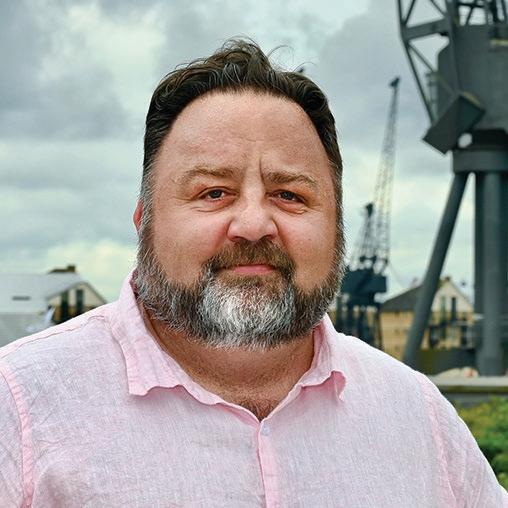

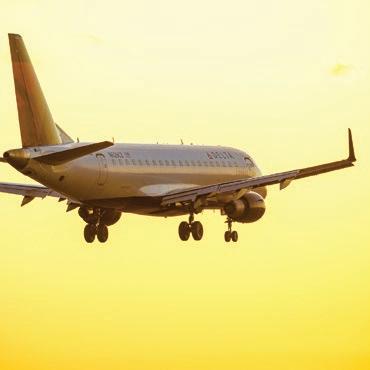
10 The Conversation: We chat with Nico and Elkie Nicholas about their sustainability start-up and working with the 'other half'

13 Ask the Expert: Agiito's Dana Moore shares her expertise on building sustainable travel policies

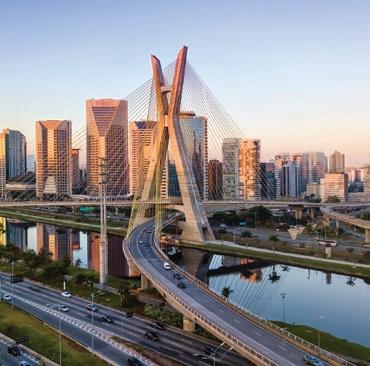
41 Reality Check: We check out an arty hotel in Battersea, an aparthotel in Stratford, dog-friendly apartments in Brighton and an oceanfront resort in Queensland, Australia

EDITORIAL
EDITOR
Bev Fearis


CONTRIBUTORS
Neal Baldwin, Sheena Adesilu, Charlotte Flach & Gill Upton
DIGITAL EDITOR
April Waterston
'Loyal', 'agile', 'innovative' and 'flexible' are just some of the words used to describe small and medium-sized enterprises by travel management companies and suppliers, who just love working with this market segment. That's why we've dedicated this issue to all SMEs out there who play a vital role in our industry and in the wider UK economy.
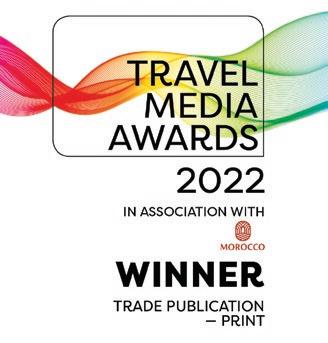
However, many of the issues we cover are just as relevant for our friends in larger corporations. Rising costs are affecting everyone, no matter the size of your budget, so check out our feature on page 32, which recommends ways to use the timing of your bookings and your trips to your advantage. Our guide to RFPs on page 38 also offers up some useful tips for companies of all sizes to help remove some of the pain points.
As I write, the team here is busy preparing for one of the biggest nights in the industry's social calendar. We are looking forward to seeing many of you at this year's Business Travel People Awards on September 25 at the Grand Connaught Rooms, London. Turn to page 17 to see how we're making this year's ceremony more sustainable. Some of the changes were inspired by the recommendations made in another of our features, on page 14, where we asked experts for tips on how to cut the environmental impact of in-person events. We hope their ideas will inspire you too. Finally, thank you to everyone who took part in our recent doggy-themed competitions on LinkedIn (see page 43), designed to inject a bit of fun during this rather damp summer. Cat lovers, it's your turn next!
EDITORIAL DIRECTOR
Steve Hartridge
ADVERTISING SALES
PUBLISHER / COMMERCIAL HEAD
Kirsty Hicks
DESIGN & PRODUCTION
DESIGNERS
Stuart Crowhurst, Matt Bonner and Caitlan Francis
PRODUCTION & STUDIO MANAGER
Clare Hunter

PRODUCTION ADMINISTRATOR
Steve Hunter
SUBSCRIPTIONS
Subscribe for free at thebusinesstravelmag.com/subscribe
BMI PUBLISHING
MANAGING DIRECTOR
Matt Bonner

CEO
Martin Steady
Fearis, EditorGood things come in small packages, so the saying goes, and it seems this rings true in the world of business travel. SMEs might not have the clout of the big guys but that doesn't mean they aren't in high demand.Bev
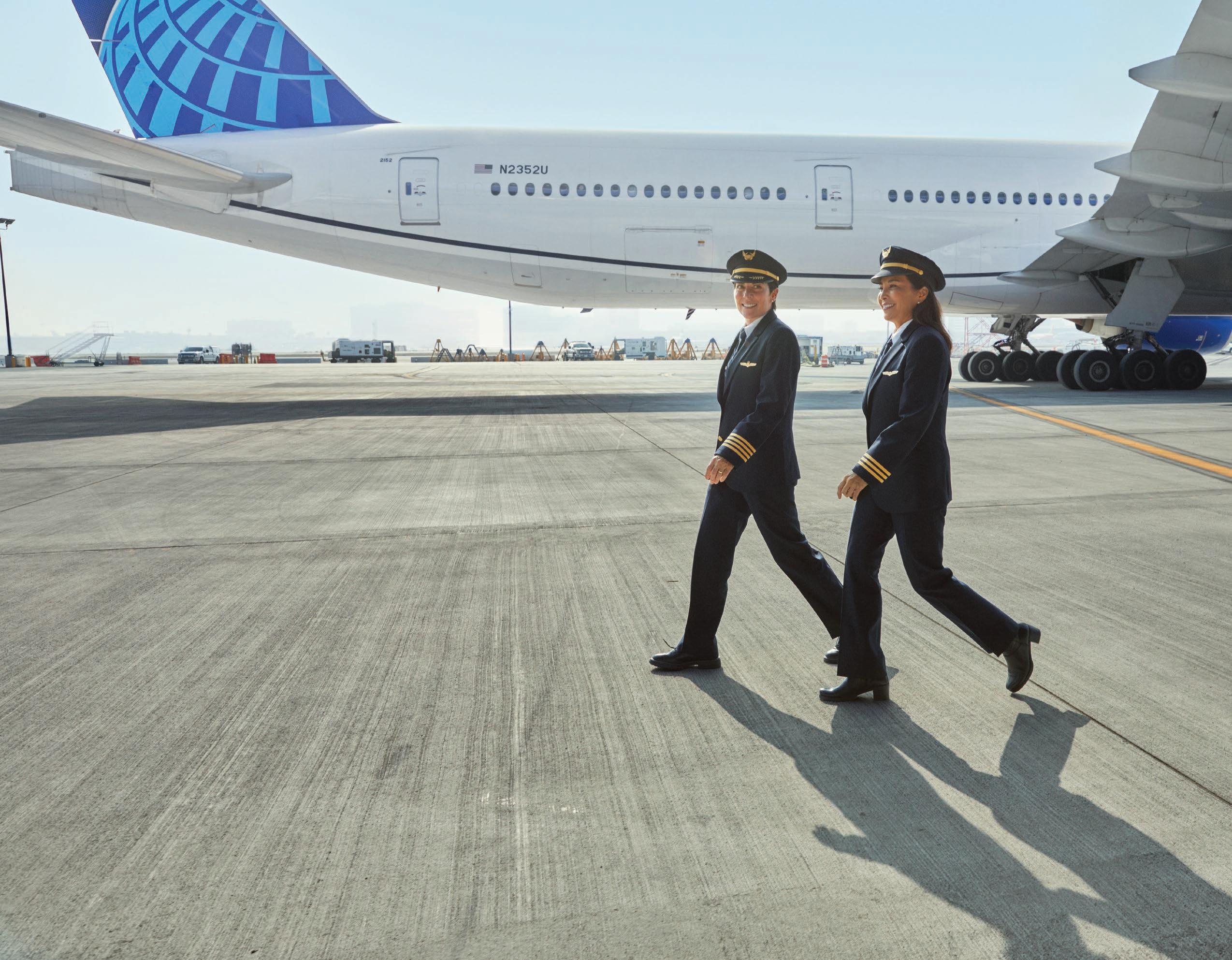

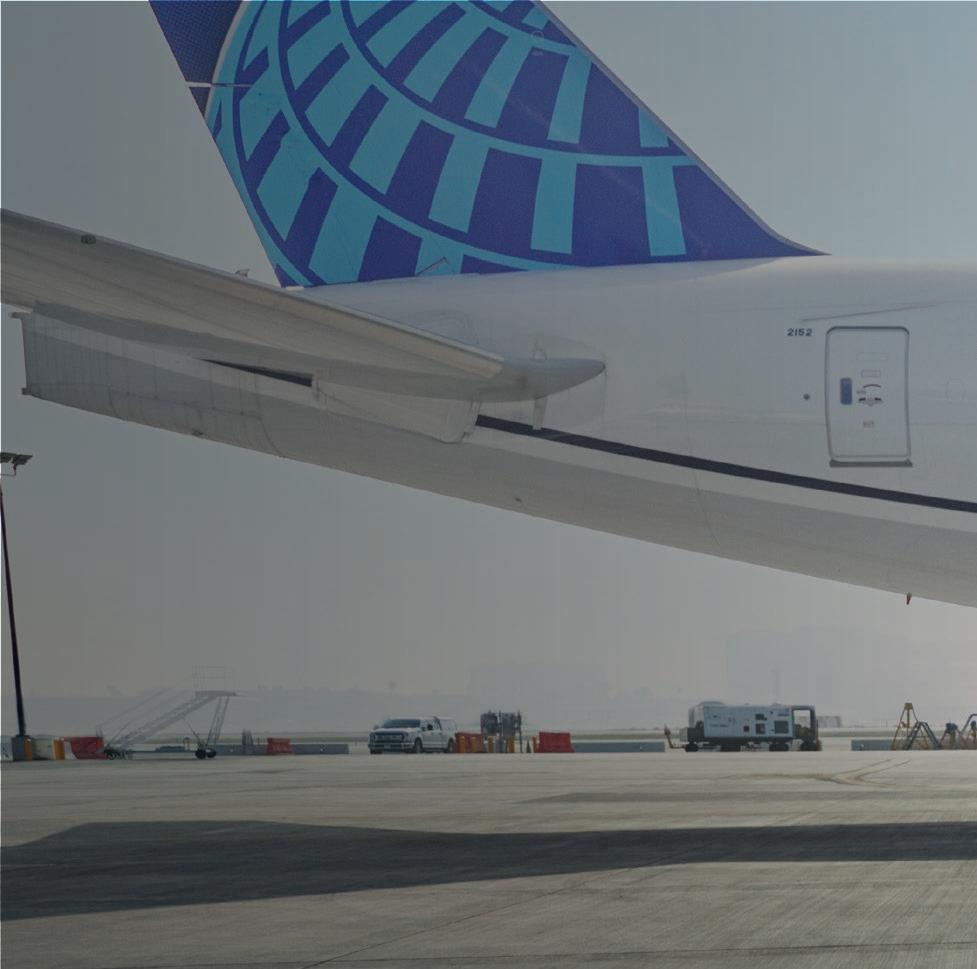
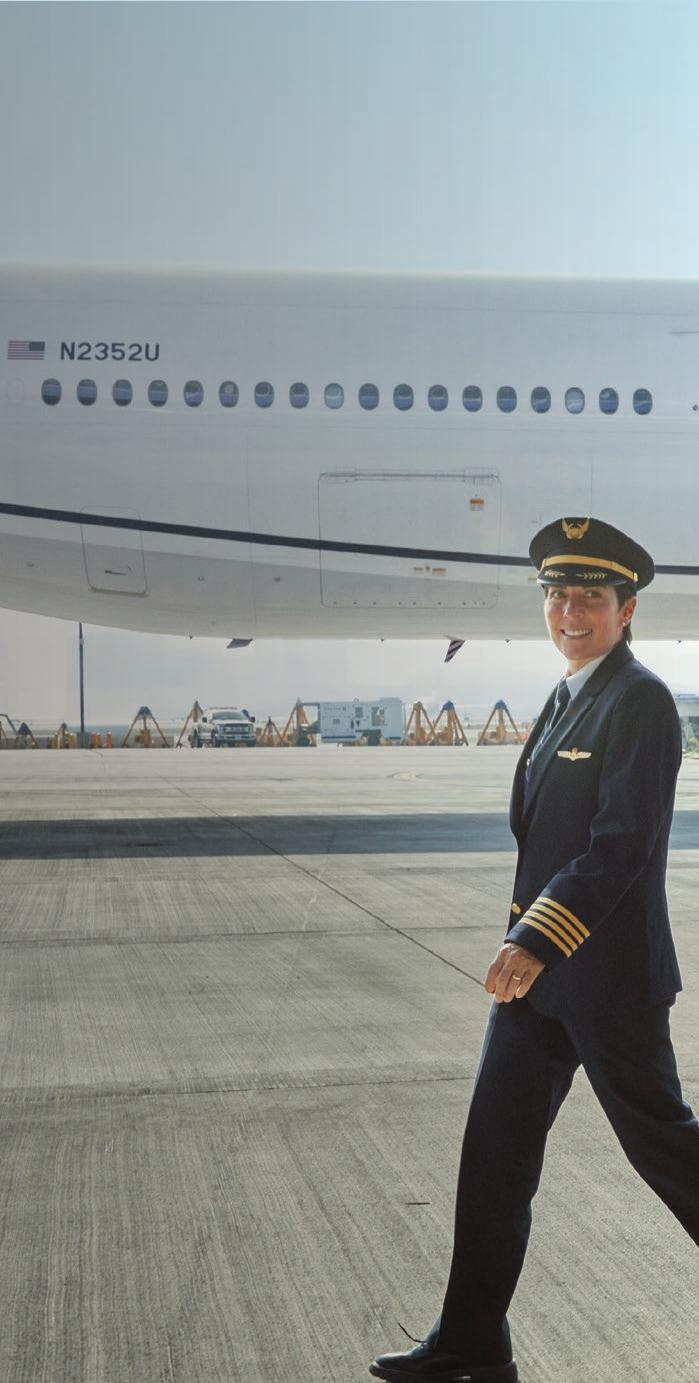


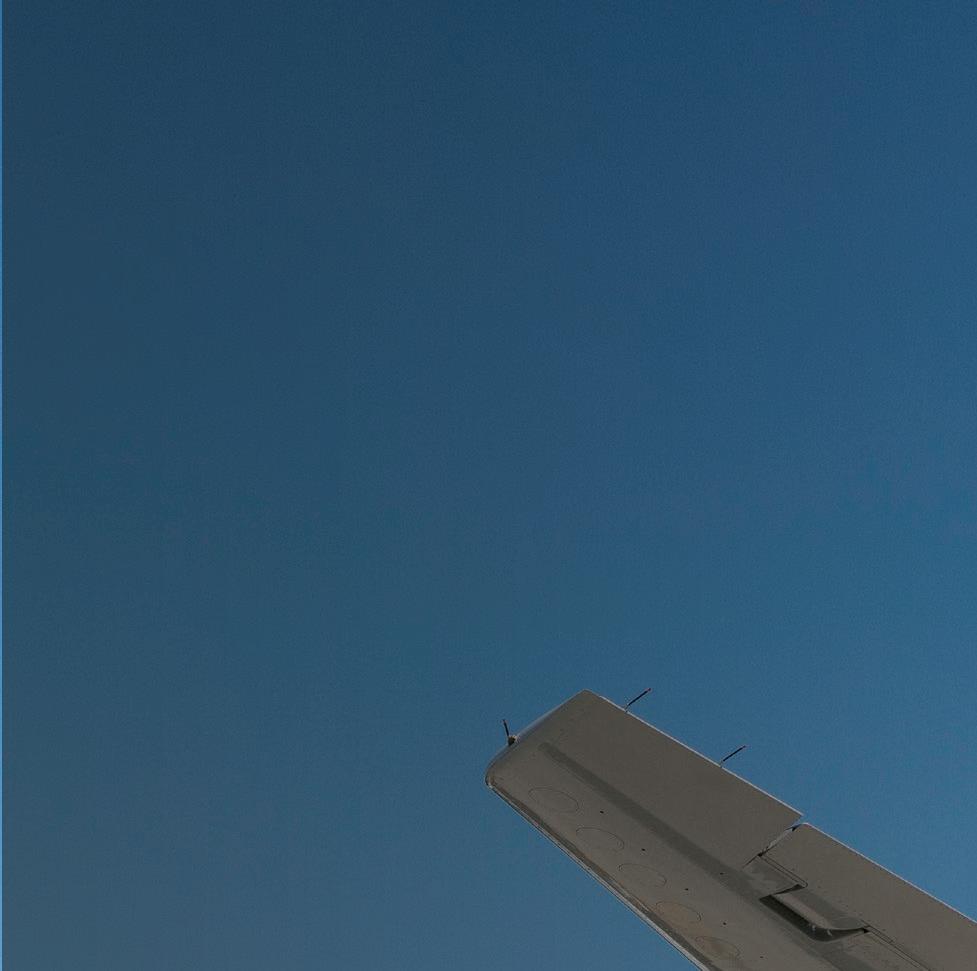
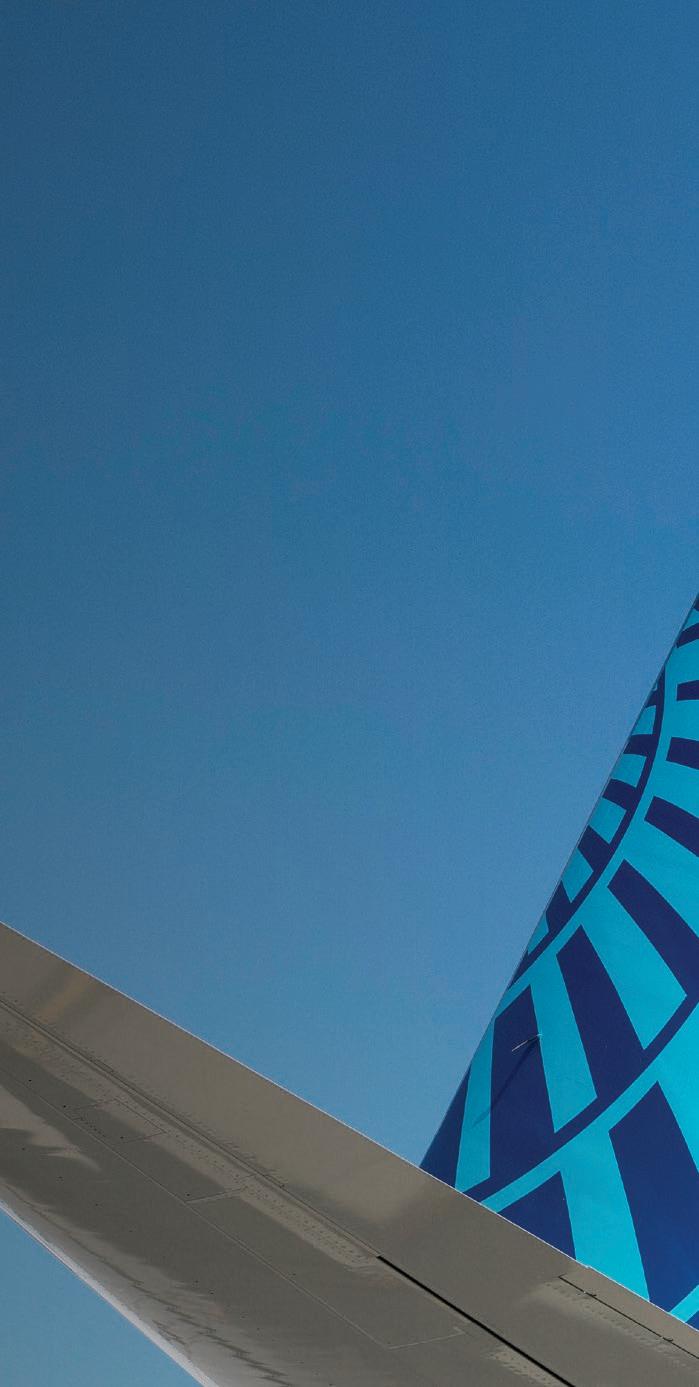
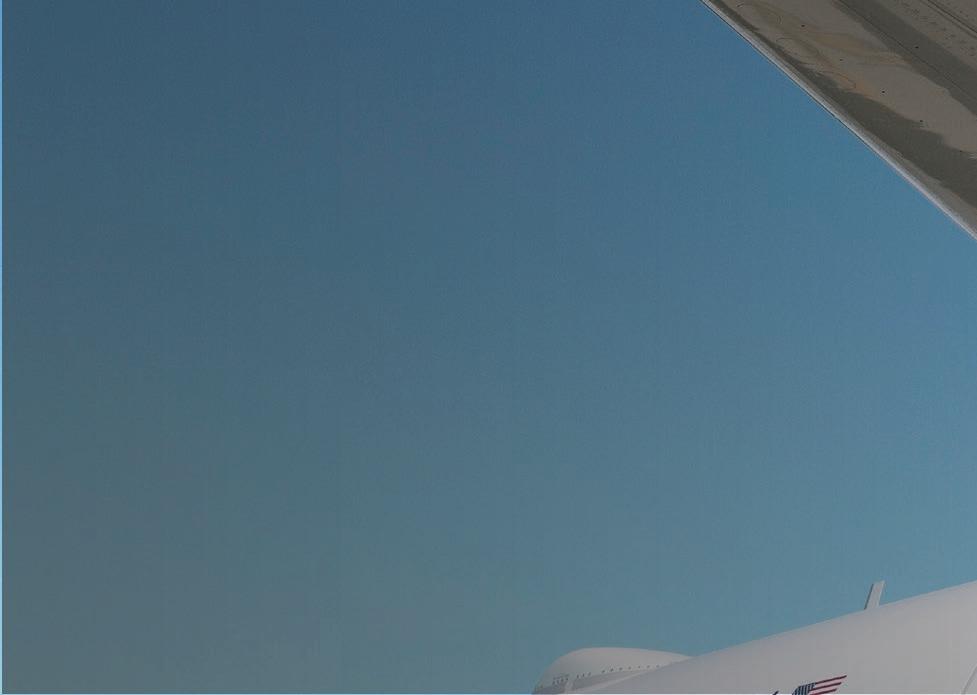
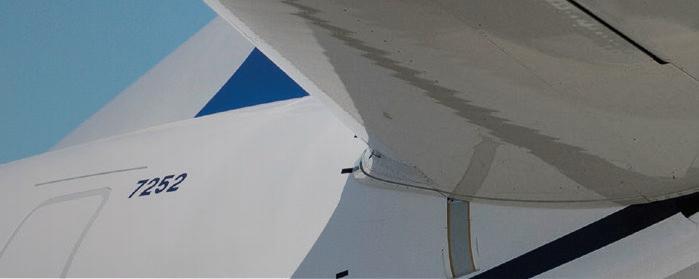
The Fifth Avenue Hotel, New York City

Scheduled to open on October 5, this former Manhattan bank has been transformed into a luxury hotel by first time hotel owner Alex Ohebshaloma. Steps away from Madison Square Park, it has 153 guest rooms and suites, many with private terraces.
The property is an historical gem, which has been lovingly transformed by a collection of some of the most creative minds across design, art, gastronomy and hospitality”
Modern Cantonese cuisine at Canton Blue is just one of the dining options at the muchanticipated Peninsula London. The luxury hotel, on Hyde Park Corner, has 190 rooms and suites and a rooftop bar, Brooklands, named after the Surrey racetrack that was the birthplace of British racing sport and flight innovation.
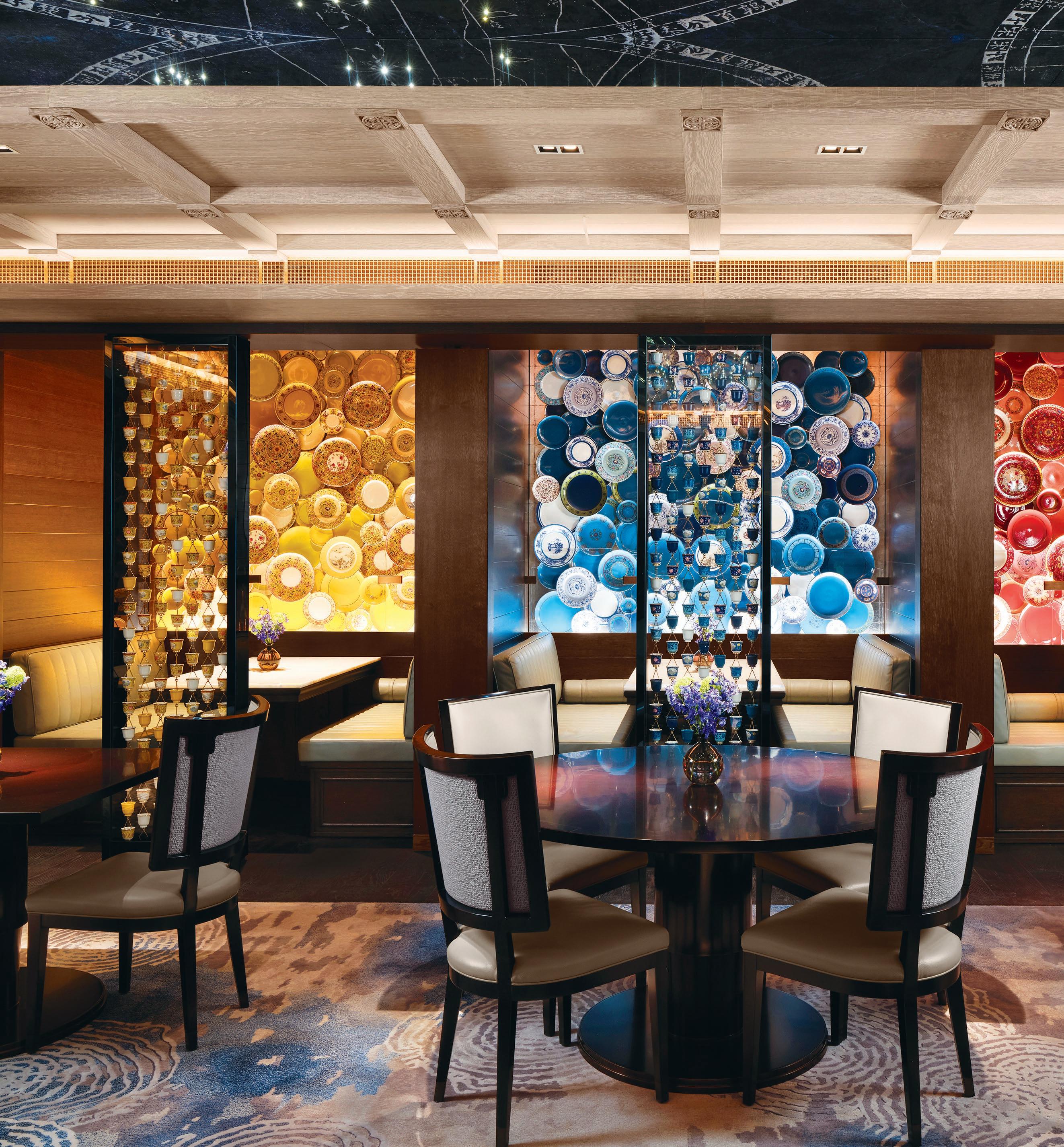
Ian Schrager's hip hotel, PUBLIC, in New York's Lower East Side, has unveiled revamped event spaces on its 17th floor. Named Sophia, Ava and Sunrise Terrace, they come with floor to ceiling windows and outside space giving guests jaw-dropping 360-degree views of New York City's magnificent skyline.

The European debut for the 1 Hotel brand, this eight-storey hotel on Berkeley Street, overlooking Green Park, bills itself as an urban sanctuary. It has 137 rooms and 44 suites, including Mayfair's largest one-bedroom penthouse, a Bamford Wellness Spa, and Dovetale restaurant, helmed by two-Michelinstarred chef, Tom Sellers.


"GLOBAL CLIENTS ARE HIGH CHURN, LOW MARGIN AND FICKLE, WHEREAS SMES ARE LOW CHURN, HIGH MARGIN AND LOYAL. THAT’S WHY WE’RE MANICALLY FOCUSSED IN THIS SECTOR"
"All suppliers are obsessed with the SME segment. You don’t need a lot of resources or hefty discounts"
SME corporates often have less red tape and can make decisions more swiftly than larger blue-chip organisations, such as the process of deciding on and appointing a TMC”

“SMEs represent an attractive proposition for many reasons, not least for their ability to innovate, bring new ideas and products to market, and developing better ways of doing things. We can learn from them”
Julie Cope, Managing Director, TakeTwo Travel Solutions
"WE HAVE FOUND OUR SME CUSTOMERS EMBRACE THE CONSULTATIVE APPROACH AND CAN MAKE DECISIONS QUICKER THAN WOULD BE POSSIBLE IF WE WORKED WITH LARGER ORGANISATIONS"
Donna Joines, Head of Corporate Traveller UK
“ SMES ARE OFTEN ENTREPRENEURIAL, AGILE AND FLEXIBLE AND NEED SUPPLIERS TO BE THE SAME. WE TEND TO GROW TOGETHER ”
James Stevenson, CEO, GlobalStar Travel ManagementAbby Penston, CEO, Focus Travel Partnership Kieran Hartwell, Managing Director Corporate, Travel Counsellors Scott Davies, CEO, ITM
When we first think about care in our industry, it’s often linked to the moral and legal duty of a business to keep their employees safe from harm whilst travelling. And that, of course, is true. Ensuring travellers and travel bookers are safe and protected is vital for both the individual and the company. Technology and tools, such as traveller tracking and repatriation services, are cornerstones in a compliant, risk managed travel programme. But can we really call this ‘care’? Or is this actually ‘compliance’? I wonder whether we need to move beyond these definitions and shift focus to the individual, so that we can build travel programmes around their needs, lives and preferences.
Why is now the time to redefine care in business travel? The first big trend is a change in expectations, as clients no long want to be a persona, they want to be unique. The travel industry has seen this play out all too recently.
For one, the upheaval of 2020 has highlighted there is no single way to



do things. All our clients’ opinions keep changing and evolving as the world around us remains unsettled. Trying to find simple ways to define a traveller no longer works.
This disconnect between company perception and an individual’s reality is being felt on both sides on the fence. One key area is the ongoing personalisation debate. Is personalisation, in regards to NDC, predominantly care led – or profit led? A personalised, customer-centric approach that has increased profitability at its core does not fit with this new concept.
We are also seeing a shift in the make-up of the global workforce. According to recent studies, Gen Z and Millennials currently make up approximately 38% of the global workforce and this percentage will rise to about 58% by 2030. These people are not just your current travellers – they are our future stakeholders, who will shape travel policy, choose the policy and dictate the way a company approaches travel in years come. And they will be doing it with their personal
values at the forefront, so it’s vital to acknowledge their need to be ‘seen’ and considered as an individual.

Another trend is a change in travel, although with an obvious discord between traveller centricity and cost savings, a carecentric travel programme feels far away. But this is shifting, and many travellers are now shunning a blind acceptance of travel policies and voicing their needs, and most importantly, organisations are listening.
The benefits are evident. Just as taking time to understand employees’ drivers builds loyalty to the business, taking the steps to place travellers at the centre of the programme builds loyalty to the programme
But it doesn’t stop there. Travel managers are key players in the business travel ecosystem, too, and also need to be considered and cared for by their suppliers.
I believe now is the time for companies to focus on instilling care as a culture, but it won't happen overnight. There are clear benefits to creating a culture of care with travel programmes – loyalty, confidence and employee retention – helping to turn programmes into an extension of the workplace, rather than policy driven. We need to shift the dial from obligation to personalisation to create an industry that truly cares, inspires confidence and, through confidence, encourages growth.
Kieran Hartwell is Managing Director Corporate at Travel Counsellors and has over a decade of business travel experience, including Chief Commercial Officer for Travel and Transport and President at Radius Travel.

We’re very much yin and yang –opposites in many ways – but that’s what makes it work,” says Elkie Nicholas, co-founder of Trees4Travel and its offshoot, Zeero.
Her husband, Nico, is the CEO (Chief Eco Officer), the techpreneur and customerfacing front man, while Elkie – who has a background in fashion – works more behind the scenes as CTH (Chief Tree Hugger), heading up the marketing and creative side.
“Of course, we don’t always see eye to eye – we have some fiery moments – but we’re both very passionate about what we do and we have the same goals,” she adds.
The couple, who met on a blind date aged just 17, live between the UK and France and have two 20-something sons – one a trainee stuntman and the other an extreme kayaker. “Both have clearly inherited our love of adventure – and taking risks!” says Elkie.
Their third child, they say, is their sustainability start-up.
“We’re a small team and we’re global, so we don’t have much time off,” says Nico.
“It literally is like having a baby. If it cries at night, you have to be there. Elkie was just this week up at 4am on a call to Australia.”
Running an international business also means international travel, but that’s something this pair are experts in.
As founders of a sustainability company, it’s an irony they’re willing to acknowledge.
“We’ve both been business travellers for the whole of our adult lives and have an enormous carbon footprint,” confesses Elkie.
“We are international people and have always had friends and connections all over the world,” adds Nico.
“I’ve always loved getting on a plane and going somewhere new.”
Previous entrepreneurial ventures have seen Nico rescue his mother’s failing wedding dress design business, develop accountancy software for global retailers, create an alcoholic drink (namely Spritz) and packaging for chocolates and champagne –all of which involved significant long-haul travel. Together the couple have also launched various travel-related businesses, including technology to help travel agents book villa rentals, which was adopted by Sabre.
The inspiration for Trees4Travel came from an idea for another travel start-up –Sun Searcher – where holidaymakers can use the weather to find the best destination for their dates. Elkie recognised the concept was closely linked to climate and suggested planting a tree for every client.
“I had just come back from India, where I was learning to be a yoga teacher, and I had

seen firsthand the mountains of waste and the pollution,” she explains. “I knew we had to do something.”
The pair registered the name Trees4Travel and began sharing their idea with friends and colleagues in the travel industry.
“We had an amazing response to it, so we put Sun Searcher on hold and focussed on developing Trees4Travel,” says Nico.
The concept is simple. For each business or leisure trip, Trees4Travel calculates and translates the CO2 emissions into a number of trees. Taking the train from London to Paris and staying in a hotel for three nights equates to one tree, for example, while a flight from New York to Cancun and spending a week in a villa requires the planting of six trees.
Each tree and its connected certified
The sustainable travel champions chat to Bev Fearis about their start-up ‘baby’ and what drives them to want to make a difference
The problem isn’t the fact that we’re travelling, it’s that we’re putting the wrong stuff in our planes, our boats and cars, and we’re not respecting the destinations we go to. ”
carbon credit costs around $3, less than the price of a coffee in many destinations.
Trees are planted in carefully-chosen reforestation projects in countries such as Nepal and Kenya. The projects always ensure local communities can live from the forests but are compatible with their restoration and conservation. The focus is on long-term strategies to tackle the climate and biodiversity crises but also meet livelihood needs, therefore being able to support 13 of the 17 United Nations Sustainable Development Goals.
“The tree planting concept works with most people. It’s simple and tangible,” says Nico.
But disillusionment with the carbon credit market, particularly due to lack of regulation and high and widely-fluctuating prices, led to the launch of ZEERO early this year.
Heading towards being a joint venture, crowdfund platform, ZEERO is an additional option where instead of carbon credits, participating companies and travellers can earn shares in ZEERO with every tree planted. ZEERO will become an investment vehicle to fund the research and development of innovations to produce clean energy. A key project already being developed involves the production of saltwater algae to convert into sustainable aviation fuel.
When did you first become aware of the issue of climate change?
Elkie: The first time I thought about it was back in 2006 when I saw the Davis Guggenheim movie An Inconvenient Truth, which follows the former US presidential candidate Al Gore on the lecture circuit to raise awareness of global warming. I thought ‘oh my god, that’s just insane’, but then I thought ‘it’s OK because politicians will take care of it’ but clearly that didn’t happen. Then, of course, Greta [Thunberg] came along, a child shouting at us all, and that was a real wake-up call.
“I believe the way we’ve been tackling responsible travel is wrong,” says Nico. “The problem isn’t the fact that we’re travelling, it’s that we’re putting the wrong stuff in our planes, our boats and cars, and we’re not respecting the destinations we go to.
“The fact is that people are always going to travel – travel is not reducing – and what we’re doing with Trees4Travel and Zeero is enabling people to continue to travel and enjoy our amazing planet, but to give back.”
The travel industry, he believes, needs to work on its environmental impact, now.
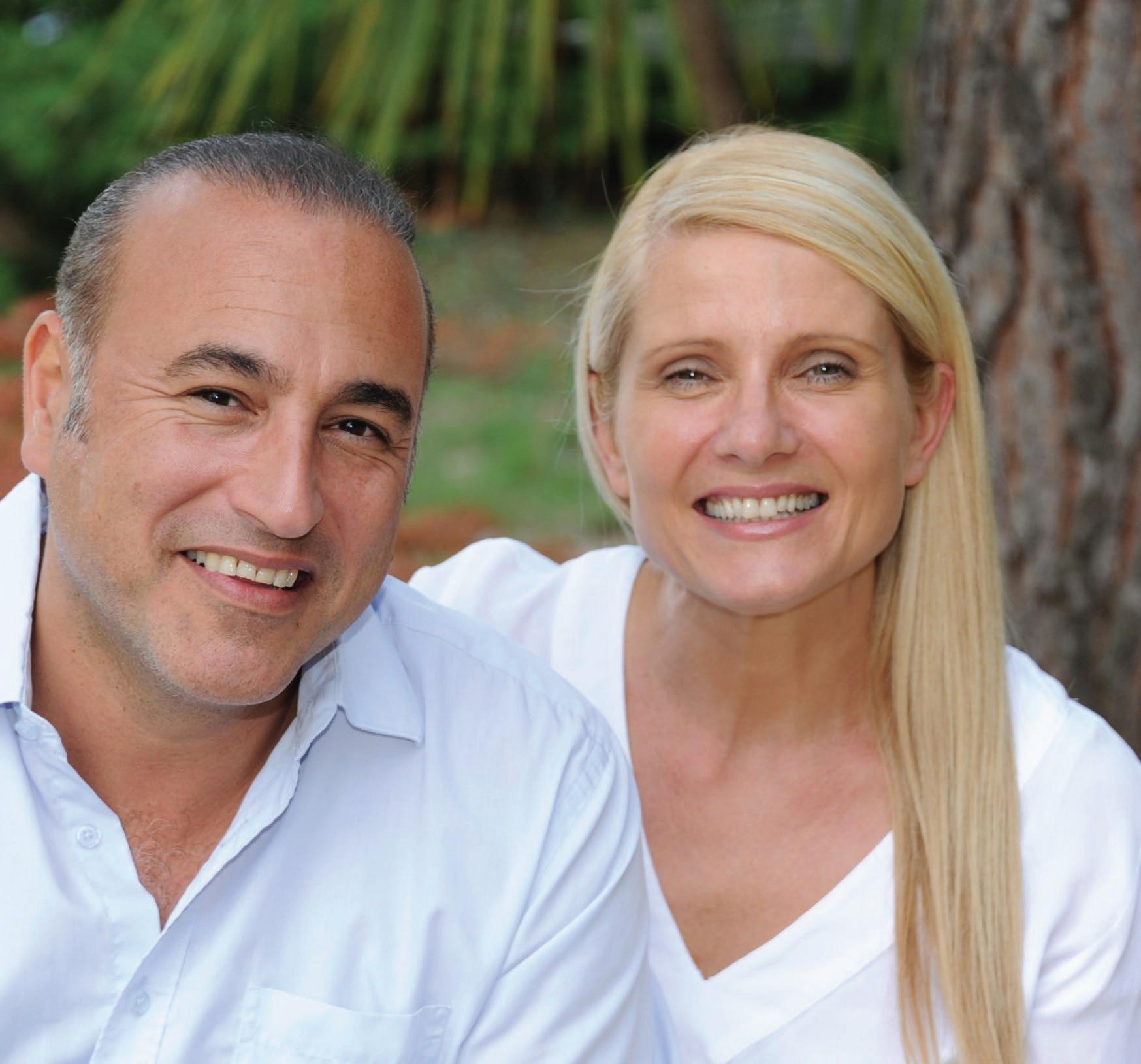
"There is still too much talk but not enough tangible action," he says.
“Measuring your emissions and switching from premium to economy class or to electric cars is a start, but it’s not a global solution and doesn’t cover the billions of people who will still burn fossil fuels in 50 years, unless we empower them with an alternative and build the funding vehicles that can help them reach those goals," he argues.
“To do that, we need everyone to be a part of this, and to achieve that we need our business to be public, multi-national and to be a mix of a tech for good company and a financial institution. We're a small business and so we need to build a strong global team to take ZEERO to that level."
Nico: Even in my early days of travelling for work, I was very much aware of mistakes being made. I would get upset when I saw bottled water, often imported from the other side of the world, in countries where it’s perfectly safe to drink the water. On our travels, Elkie and I were always looking around us at everything and thinking how we could do it better.
You launched Trees4Travel during the pandemic. How was that?
Elkie: On the downside, we were trying to get attention when a lot of businesses were simply trying to survive, but the pandemic also made people realise we’re not as invincible as we think we are and it allowed people to stop and re-evaluate.
Nico: There was a definite shift in the mindset. What we were proposing to the industry was giving people a sense of hope that when travel came back, we could do things differently. ESG is now, thankfully, top of the agenda.
What’s your favourite tree?
Elkie: Mine is the mangrove. They are just fascinating and so powerful. One of our reforestation projects is a mangrove forest in Kenya and we are about to start a second one there.
Nico: Mine is an olive tree. My family ‘roots’ are Mediterranean and I absolutely love olives (I eat them every day), and olive oil, and I Iove that olive trees can live for thousands of years.























Welcome to a special club that’s just for you, our frontline agents. One that gives you points for every booking you make with us to spend on incredible rewards. This September, we’re awarding double points for every booking made across our network. So, you’ll get double the amount to spend on rewards, from lifestyle treats to holidays.











Sign up today at virginatlanticskyhighclub.com












and carbon savings, but also improves employee work-life balance and overall wellbeing.
How can TMCs support customers?
Traditional business travel often comes with a significant carbon footprint due to air travel, hotel stays and transportation. TMCs can actively promote and offer sustainable travel options to their customers, track and report sustainability metrics and collaborate with sustainable suppliers, supporting their customers to monitor their progress towards sustainability goals and identify areas for improvement.
A sustainable business travel policy not only influences an organisation's carbon footprint reduction, but also provides employees with the right support and information to carry out their duties safely and effectively, and taking into consideration supply chain due diligence, duty of care, carbon budgeting, environmental impacts and wellbeing.
In today's environmentally-conscious society, stakeholders – customers, investors and employees – expect organisations to be transparent about their environmental practices. Reporting emissions from business travel is a crucial step towards meeting these expectations. It demonstrates a company's commitment to sustainability and can enhance its reputation among stakeholders.
Today, many organisations operating in the EU or UK are already reporting on their
scope 1-3 emissions, which includes precise emissions across their full supply chain and detailed plans of how they are going to reduce them this decade. The UK has already made significant progress in this area with the introduction of various reporting frameworks, which provide guidelines and standards for companies to report on their ESG performance, ensuring transparency, consistency, governance, and cross industry comparability. By embracing corporate disclosure reporting, organisations enhance their reputation and can also attract responsible investors and consumers. It enables investors to make informed decisions, directing their investments towards organisations that align with their values and contribute to a greener, more sustainable future.

Having the right communication strategy in place is key to educating travellers on the negative impact frequent travel has on both the environment and wellbeing, empowering them to choose more sustainable carbon alternatives. This not only generates cost
By incorporating these strategies, TMCs can become valuable partners in helping customers achieve their sustainability objectives. TMCs, their customers and suppliers should come together to help transform the travel industry into a more sustainable and responsible sector.
Maximise the efficiency of each journey by combining multiple meetings or events into one trip to reduce the overall carbon emissions and support traveller wellbeing. Consider trains before planes. Trains are more energy-efficient per passenger mile than planes or cars, making them one of the most eco-friendly transportation options (outside of walking or riding bikes). Look for hotels or accommodations that prioritise sustainability, such as those with energyefficient practices, waste reduction initiatives, and eco-friendly amenities and green credentials. Whenever possible, explore virtual meeting options like video conferences or webinars. This reduces the need for travel altogether and saves time and resources. Consider offsetting the residual carbon emissions from your business travel by investing in verified nature-based, green technology and SAF carbon offset projects. This helps neutralise the environmental impact of your travel.
Just like Elvis, event planners are caught in a trap. In a post-Covid world reshaped by hybrid working, the desire to throw off the shackles and meet faceto-face is perhaps bigger and more relevant than ever before. Yet businesses are under even more pressure to stick rigidly to ESG policies that demand responsible and environmentally-friendly actions in the name of work. We asked a host of experts for their advice on how to hold a genuinely ‘green’ event.
The typical event attendee is responsible for producing more than 176kg of CO2 each day and generates an average of 1.86kg of waste. The numbers don’t make for comfortable reading.
But sound planning goes a long way. Cvent Vice President of International Sales, Graham Pope, backs online sourcing platforms as a great first step, allowing planners access to interactive 3D floor plans and virtual tours without the need for multiple site visits.
“Venue sourcing technology enables planners to build and customise RFPs to send directly to venues, and like-for-like
responses to critical information, including sustainable practices, can be reviewed. Planners can also directly collaborate with venues and remotely explore virtual scale event layouts,” he says.
The technology also means venues can showcase their sustainability initiatives more effectively by uploading content highlighting sustainable practices and certifications such as Green Tourism, energy-efficient solutions and waste management.
In a similar vein, tools such as those developed by Thrust Carbon allow businesses to generate emission impact reports for potential destinations based on hundreds of data points, including flights, road travel and hotel choice.
Travel
“With 70% of an event’s carbon emissions caused by travel, no amount of fiddling around the edges with waste and cutting plastics is as important as how people arrive and depart,” says Spencer Brace, Head of Growth Strategy at meetings planning platform TROOP.
“Using technology is the best way to filter possible destinations overseas, since it can




also consider traveller wellness and wasted time by cutting out issues such as the need for connections and applying for visas.”
For gatherings closer to home, organisers should make efforts to discourage private vehicle use. If it’s an internal company event, consider choosing a venue that is a convenient mid-point for the majority of employees and promote car-sharing. More generally, incentives such as travel cards and vouchers for electric Ubers can be a nice touch, alongside running shuttles from train and bus stations near your venue.
ATPI Halo Product Director, Pippa Ganderton, has a sneaky trick: “We use visual guilt to encourage public transport use,” she says. “Send an email asking people to tell you their mode of transport in advance. They rarely say ‘car’ if confronted by greener options!”









Carbon emissions from venues account for around 4% of an event’s total, but while this is a small amount it can be an easy saving for organisers. Look for options that are members of accredited sustainability schemes, such as Green Key, Greengage and EU Ecolabel, which oversee how

Often there’s no substitute for in-person events, says Neal Baldwin, but how can you make sure they’re done responsibly?

properties operate. Meanwhile, LEED and BREEAM certification shows venues are built to the latest green standards. Greengage analysis last year discovered the majority of bookers will now not even shortlist venues without established sustainability policies or plans. As a result, its latest research in July revealed venues were increasingly investing in their environmental credentials, with over 80% of those on its database saying they were actively working to reduce energy and water use. Meanwhile, the trend is for bookers to seek out venues with 20 or more EV chargers and ask questions about how providers look after their staff and contribute to their local community.
Andrew Perolls, Chief Executive of Greengage, said: “Sustainability is now a top priority for hotel and venue bookers. Our partners report that many bookers won’t even consider a venue if it can’t show that sustainability is at the heart of its operations.”

De Vere is a good example. It has switched to 100% renewable energy across its country house estate using biomass, wind, hydro and solar power, has an on-going programme to roll-out EV chargers, sources food locally and even recycles used cooking oil into biofuel. “We’ll also shortly be launching our ‘Sustaynable’
initiative where guests staying two nights or more will have the option to opt out of having their room cleaned and instead we will plant a tree,” says Chief Commercial Officer, Alan Corlett.
While every event organiser worth their salt knows single-use plastics are a no-no, there’s more to waste management than ditching lanyards and cutting out the branded corporate tat.
Progressive firms are looking at every purchasing decision with an eye on the packing away afterwards. Reusable stages, repurposing existing stock, and even building with reclaimed materials should all be on the list, say Event Cycle Director Chantal Kerr-Sheppard.
And with the focus on buying less, turn attention to ensuring waste avoids landfill by being passed on to others in a demonstration of the ‘circular economy’.
“We’ve helped clients get rid of old backdrops by donating them to Syrian refugees, who turned them into fantastic tote bags,” says Kerr-Sheppard.
“Imagine your CEO telling attendees that the chairs they are sitting on will go to a local school. You are making a difference and can create a real feel-good factor.”
Showing its commitment to the cause, the ITM’s own conference in April was a lesson in green planning. “Even our table centrepieces were created using locallygrown organic flowers provided by an ethical florist,” says Stacey Dean, Head of Events and Partnership. “In fact, delegates created the centrepieces themselves to learn more about sustainable flower growing. Afterwards the flowers were given to a local nursing home.”
Back in 2019, meeting specialist Lime Event Portfolio coined the phrase ‘FORO’ (‘Fear Of Running Out’) to capture the perennial nightmare of event organisers. Its research showed a typical three-day gathering ‘overcatered’ by 15%, the equivalent of 500g of food per person, most of which went straight into the bin.
Thankfully, the sector has made huge progress since, with the emphasis on better portion control and getting attendee numbers right in advance. With food production a major contributor to greenhouse emissions, switching away from red meat and dairy, and sourcing more local in-season produce is particularly helpful.
“Don’t forget charities too,” adds Event Cycle’s Kerr-Sheppard. “Often venues will work with local organisations to take good food."
While video conferencing was once touted as a threat to in-person events, the reverse is true. Lockdown has made online communication far more acceptable and commonplace, and many venues are now set up to offer hybrid events for a mix of on-site and virtual attendees. Often these can be cheaper than going ‘virtual only’, says Dana Moore, Agiito's Proposition Manager - Air, Ancillary and Sustainability.
“Technology can hugely support when it comes to registration and documentation. Having an event app with networking capabilities removes the need for business cards, saves on printing documents and can encourage car-sharing,” she adds.
Additionally, dedicated event apps give organisers the ability to collect valuable feedback during and after proceedings, which helps shape future plans.
“We capture granular detail from attendees, which really helps us,” says ATPI’s Ganderton. “We can go to future suppliers knowing what worked and what didn’t. We also use the app to communicate positives to guests, such as explaining how we are offsetting their emissions rather than handing out unnecessary branded giveaways.”
Imagine your CEO telling attendees the chairs they are sitting on will go to a local school. You are making a difference and can create a real feel-good factor”
Hundreds of industry professionals will gather in central London on September 25 to celebrate the 2023 Business Travel People Awards. The event is being held at the De Vere Grand Connaught Rooms in Covent Garden. Working with the venue and other industry partners, here are just some of the sustainability measures we’re putting in place this year to help reduce the environmental footprint of the event. Tickets are still on sale for the ceremony. Go to thebusinesstravelmag.com






All guests at this year’s ceremony are being asked to complete a form in advance detailing their return mileage and what form of transport they will be taking so that one of our key sponsors, ATPI Direct, can offset their travel. The venue, in central London, is well served by public transport, encouraging more guests to ditch their cars and travel by rail. With purposeful travel in mind, the form also encourages guests to make their attendance to the evening ceremony count by arranging other meetings around it.
We don’t want to give too much away about what you’ll be tucking into on the night, but we can confirm that guests at this year’s ceremony will enjoy a delicious vegan starter and a white meat main course, or can opt for a vegan alternative. There will also be a vegan option for dessert.
De Vere, which manages the Grand Connaught Rooms, has adapted its conference menus in line with the rise of
veganism, acknowledging the positive environmental impact this lifestyle affords its guests. Across all of its hotels and conference venues, it has saved 31,936Kg of greenhouse gas in the last 12 months, using plant-based ingredients that use fewer natural resources, which is an improvement of over 50% year on year. It is also stocking more British products, particularly drinks, and encourages its chefs to use locallysourced ingredients to reinvest in their local businesses and communities. When it can’t source local products, De Vere adopts a ‘just in time’ ordering process through its procurement partner to address food waste. When food wastage is unavoidable, it is collected and taken to anaerobic digesters to create biogas and compost.
For the first time, our People Awards winners will be presented with newlydesigned awards made from wood, not plastic. We’ve seen a sneak preview and we can assure you they’re super stylish and will look great wherever our winners decide to display them.
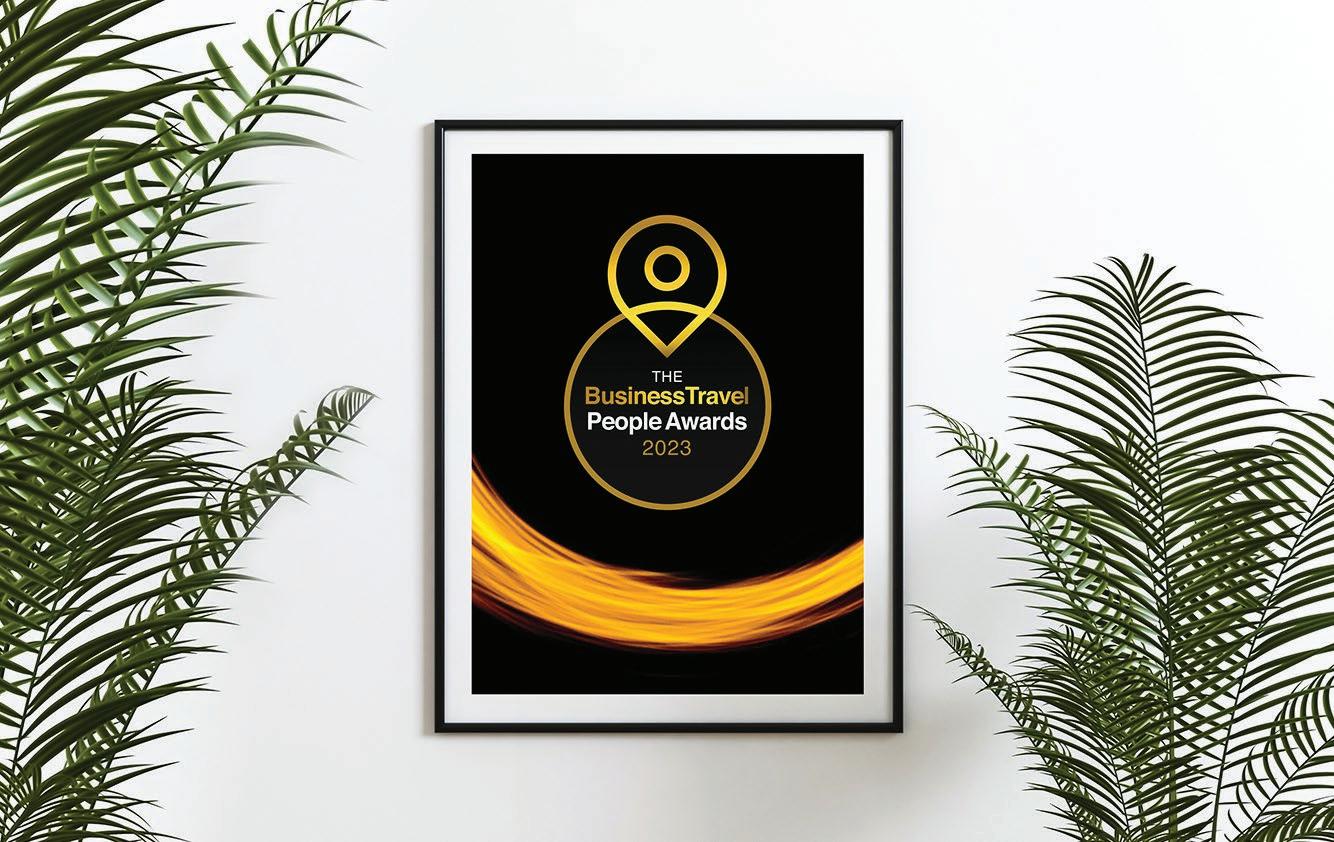
This year, place names for our sit-down dinner will be printed on handmade seed paper made from pre-consumer recycled cotton, which degrades naturally in soil and is packed with bee-friendly flower seeds, including Sweet Alyssum, Baby's Breath and Poppy, so make sure you take yours home. Not only will it be a reminder of a fantastic night, you'll be giving something back. The awards programmes will also be printed on recycled paper, while table plans will be displayed on digital screens.
Rather than printing new table numbers with sponsor branding, we will be using those provided by the Grand Connaught Rooms, along with the venue’s existing tea lights and mirror plates for the centre pieces.
Artwork for our awards presentation stage will be kept to a minimum with one single piece of artwork. Digital screens will be used to display all other essential information, such as the names of the shortlisted finalists, the winners and the sponsors.
Ensuring we practice what we preach, we’ve made some changes to this year’s Business Travel People Awards
THE GLOBAL business travel industry is recovering faster than first predicted, according to the latest figures from the GBTA.
The association’s latest Business Travel Outlook, unveiled at the 2023 GBTA Convention in Dallas in August, says spending will surpass the pre-pandemic level of $1.4 trillion in 2024 and will grow to nearly $1.8 trillion by 2027.
In 2022 spending rose 47% to $1.03 trillion, with strong gains continuing and 32% growth expected in 2023. Western Europe was the fastest growing region globally last year. The outlook says the increases were fuelled by pent-up demand after the pandemic, more favourable global economic conditions in 2022 and 2023, and recession risks that have yet to happen.
>> SNOWFALL has announced the acquisition of tech start-up AmigoGo, an app that bills itself as a ‘pinterest for travel’ by enabling groups to plan and book trips collaboratively >> GOOGLE has joined the sustainable aviation fuel (SAF) programme run by American Express GBT and Shell Aviation >> TROOP has launched TROOP ONE, a unified meeting planning and group travel logistics platform with new workflows, features and integrations >> BRITISH AIRWAYS is expanding its short-haul network with new flights to two European capital cities, Riga in Latvia and Belgrade in Serbia, in late October >> MUSIC FIRST PARTNERSHIP has partnered with CATCH to streamline the booking and management process of travel logistics >> EMBURSE, the T&E management specialist, has acquired reshopping company TRIPBAM >>
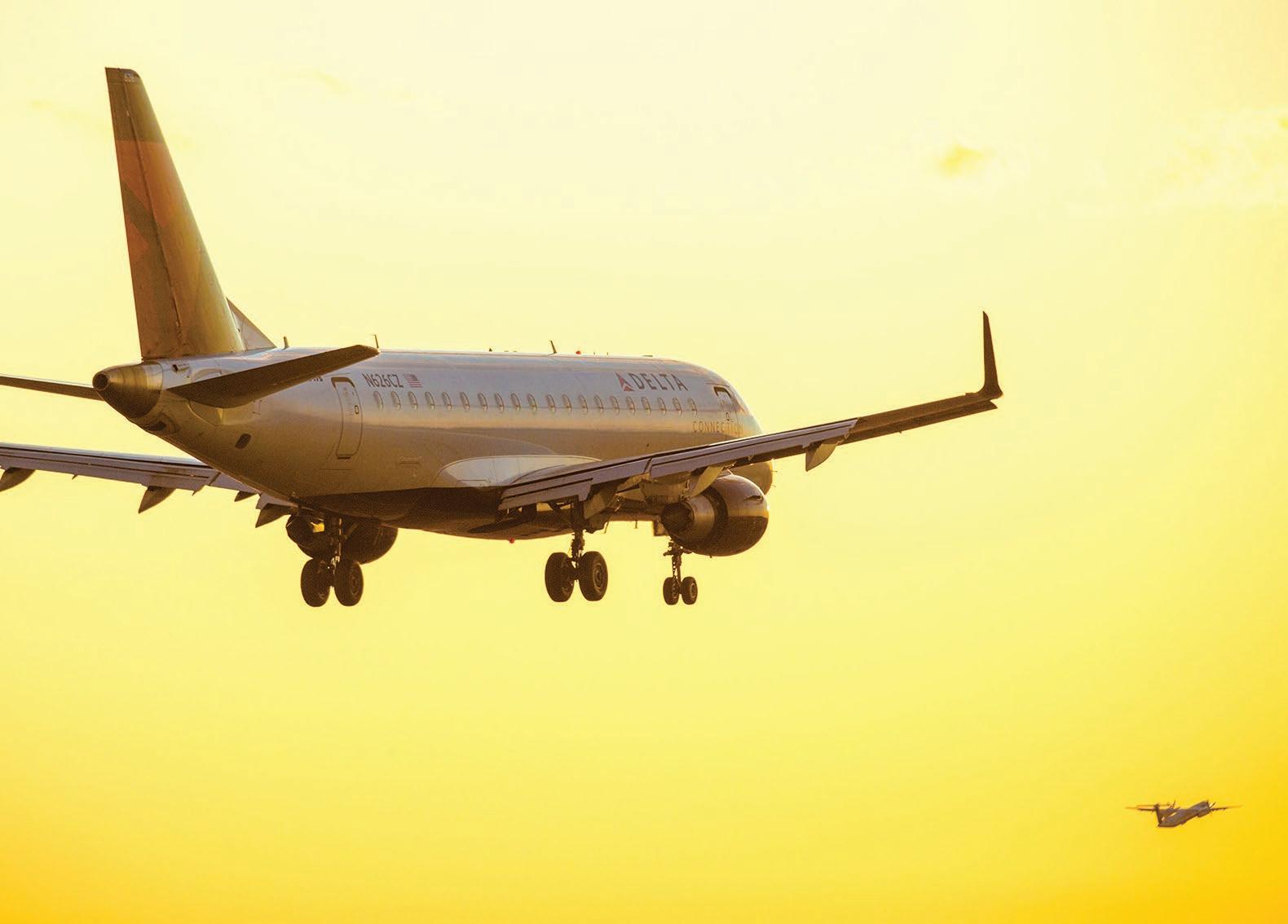
BUSINESS travel-decision makers are planning to strengthen artificial intelligence and sustainability practices in the next few years.
This is according to the new Navigating Global Business Travel report from credit card processor Mastercard, which predicts the needs and challenges of business travellers.
Over 500 travel-decision makers from key markets across the world were surveyed.
Mastercard reported that 91% of companies are planning to invest in AI and machine learning to
provide employees with a more personalised travel experience and improve T&E processes in the next five years.
The survey also highlighted that 90% of respondents are now placing a greater emphasis on ESG tracking for business travel and understanding the impact from carbon emissions.
Nearly half of decision-makers said that cutting business travel would decrease revenue by 10% and increase employee turnover by more than 10% in the next three years.
SPECIALIST tour operator Wexas has sold its corporate travel division, Wexas Travel Management, to Good Travel Management. The sale, for an undisclosed sum, includes the purchase of the Wexas client base and the transfer of its 21 staff. It will add 70% growth to the turnover of Hessle-based Good Travel Management and will bring its headcount to more than 50.
22% rise in Revenue Per Delegate for UK events
e UK events industry is reporting a 22% increase in the Revenue Per Delegate for conferences and meetings in the second quarter of this year, compared with the first three months, according to latest Business of Events’ Event Economy Tracker.
Small and medium-sized enterprises (SMEs) are at the heart of our industry. They drive innovation, create jobs, strengthen the UK economy and are a core customer group for the BTA’s TMC members.
SMEs shape the future of the UK economy. They create employment, develop people and lay the groundwork for growth. By reducing unemployment and stabilising the economy, SMEs help to create a more prosperous outlook for the business travel sector and the UK as a whole.
LAUNCHING
robust support, especially as they navigate these transformative times.
As our industry continues to recover, SMEs are increasingly recognising the potential in partnering with TMCs to get the most out of their travel budget, with TMCs playing a strategic role in SMEs' growth plans as a result.

They need the same high-quality service, access to seamless technology and specialised talent from TMCs as larger organisations, but it's vital that TMCs tailor their offerings to meet the unique needs of SMEs. Post-pandemic, SMEs have demonstrated incredible resilience through their rapid adoption of the strategies, technologies and practices used by the bigger organisations.
Their quick rebound re-emphasises the importance to TMCs of providing seamless and

In this spirit, it's vital that TMCs step forward – not just as business travel facilitators, but as valuable partners that can effectively guide SMEs through the complex landscape of business travel with confidence.
SMEs are the cornerstone of our industry's success, driving innovation and contributing significantly to the UK's economic growth. Recognising their importance, the BTA and its members stand committed to delivering exceptional service tailored to SMEs' specific needs.
If they are willing to embrace TMCs as strategic partners, these relationships can help SMEs accelerate on journey towards expansion and success.
Clive Wratten Chief Executive Officer
VIRGIN ATLANTIC'S NEW FLIGHTS FROM LONDON HEATHROW TO SÃO PAULO, BRAZIL, ARE NOW ON SALE.
ON MAY 13 2024, THE DAILY SERVICE WILL BE THE AIRLINE'S FIRST EVER ROUTE TO THE SOUTH AMERICAN CONTINENT
Having worked for various supply side organisations who proudly announce their intention to grow their presence in the magical SME market segment, I’ve often wondered how the targeted customers feel about being labelled this way. Does anyone aspire to own, run, or work for an SME?
Of course, many will find that the somewhat formal, political and corporate working environment of a multinational PLC is stifling, bloated or inflexible (no offense intended), and therefore those individuals will aim for the agile, flat structure of a smaller business. But the reality is that, in business travel, our suppliers effectively decide for themselves who is and who is not an SME. And it will be framed by their travel spend rather than their turnover or headcount.
So why do CCOs and associated strategists obsess over competing in the small and mid-market?
The answer mostly lies in the relative complexity and volatility in the other segments, primarily being large/global customers and those in specialist segments
like the public sector. These customer groups require skilled, well-trained account management resource, senior leader sponsorship, tailored deal structures and perhaps most disappointingly, large discounts. A former boss used to remind us that when we positioned a 'strategic' discount, this was code for 'a really big one'.
The attractive element of the enterprise segment is, of course, the large chunk of volume collected in one go, but if the customer is subsequently lost, the pain is felt across the business and may mean downsizing.
By comparison, the lovely SME requires basic account management, generic or sometimes even no deal/ discount and a much lower risk profile. Not rocket science is it? Although I’ve heard some very well-paid consultants paint it as such.
Ironically, the pandemic made even the very biggest client an SME in spend terms for a little while.
Equilibrium has now been restored and I guarantee you that, in a boardroom near you, a strategy is being cooked up to next year 'target the SMEs'. Genius!
AIRPORT services for disabled and less mobile passengers have improved over the last year, according to a report from the UK Civil Aviation Authority (CAA).
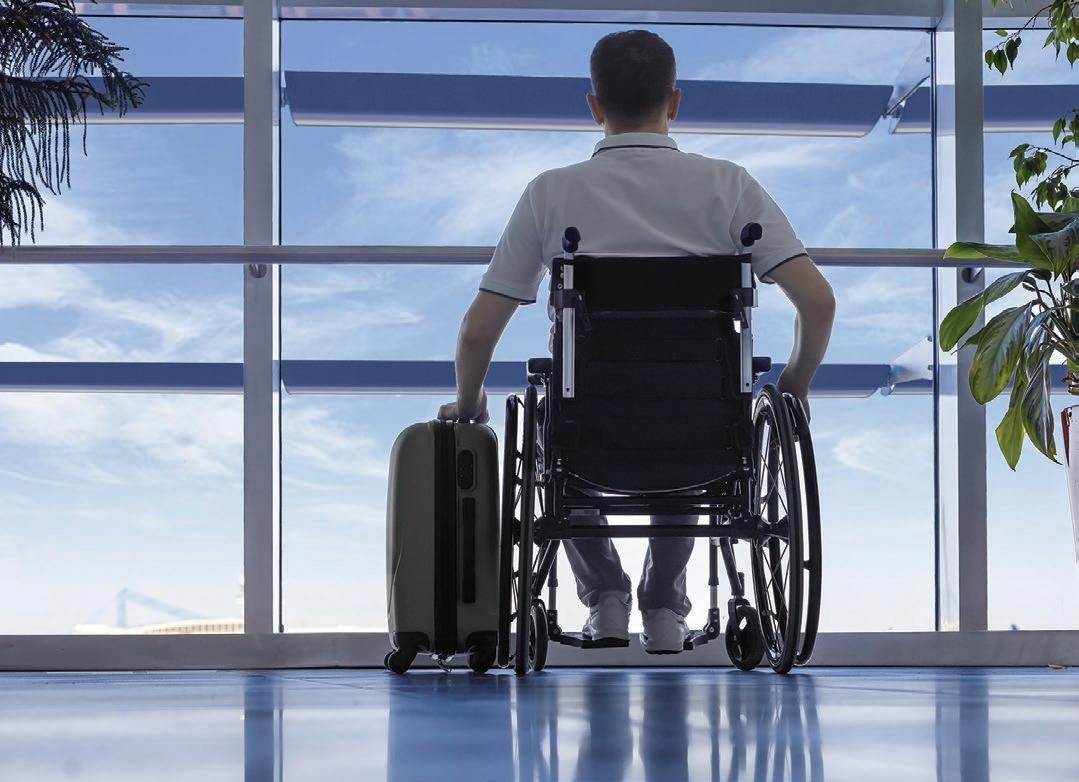
Its Airport Accessibility Report, which assesses 26 of the largest airports in the UK, highlighted airports’ efforts in providing disabled and less mobile passengers with assistance services.
From April 2022 to March 2023, 18 UK airports consistently achieved a ‘good’ or ‘very good’ rating. Seven airports also improved from a ‘poor’ rating to ‘good’ or ‘very good’ rating.
But Paul Smith, CAA Joint-Interim Chief Executive, said: "There is still a way to go in providing a consistently good service for disabled and less mobile passengers across the industry, particularly for those with more complex needs."
CLARITY, the Business Travel and Events division of the Portman Travel Group, has agreed to acquire Agiito and Evolvi, the B2B rail ticketing platform, from Capita.
Scott Davies Chief Executive
Capita said the sale of both business was at an “enterprise value of £36.5m on a cash free, debt free basis”.
Capita confirmed several years ago that it intended to sell off its business travel arm, which rebranded as Agiito in July 2021. In
the coming months it will rebrand under the Clarity name.
The business will be headed up by Clarity CEO Pat McDonagh.
Manchester-based Clarity and Derby-based Agiito each have around 400 staff and around 30 people work at Evolvi.
The deal, which has been under discussion for more than a year, is due to completed once National Security and Investment Act approval has been received.
Luxair will introduce three flights a week between Luxembourg and Manchester from April 1 2024, operating on Mondays, Wednesdays, and Fridays.
Higher education
Maiden Voyage has formed a partnership with BCD Travel to give its corporate clients access to a range of educational tools to support their ESG and DE&I initiatives.
EasyJet is launching flights from London Luton to Cairo from October 31, with flights on Tuesdays, Thursdays and Saturdays. The service is planned to run throughout the year.
Spotnana has integrated its platform with International SOS, the medical and security services company, supporting both NDC and EDIFACT bookings, exchanges and cancellations.
Visit Rwanda
RwandAir will start daily non-stop services from London Heathrow to Kigali on October 29, operated by its fleet of Airbus A330 aircraft with a two-class configuration – Business and Economy.
Singapore Airlines will ramp up schedules in summer 2024, including restoring A380 flights on Singapore-Frankfurt and reinstating direct services between Singapore and Barcelona.
Since I’m CTO, I should probably sound off about blockchain, quantum computing, or something equally geeky, but the overwhelming response to last month’s column – in which I outed myself as neurodiverse (ADHD in my case) – has inspired me to elaborate.

It made me realise that talking openly about this ‘ability’ (yes, you read that right, not ‘disability’) is liberating for other neurodiverse folk, and creates a better understanding for those who aren’t. While it’s great we are talking about it, I see little advantage in having this conversation unless it drives change.
One improvement I’d like to see is better working conditions. I feel uncomfortable seeing companies forcing workers back into the office post-Covid. A little understanding and compassion go a long way. Homeworking has been a godsend for many neurodiverse people, allowing them to organise their routine and surroundings to suit their needs. This oversight risks many quitting.
There are a lot of things we can do to support neurodiverse travellers, many of whom find the unpredictability of life on the move challenging. If you want to understand the mind of a neurodiverse traveller, look inside my laptop bag. I know every item in it and where it is located. If my passport isn’t in its usual place, I don’t cope well.
Neurodiverse travellers may need a bit longer to navigate the trip process for example, such as getting through the airport. So, avoid booking us indirect flights with tight connection times.
Conferences are another area worth a rethink. I sit at the back or side of the room. It’s not because I’m being unsociable or rude, but so I can slip away discreetly if I need to, but there isn’t
always somewhere to slip away to. More dedicated quiet zones would be great. I tend to retreat and internalise things, but doing so enables me to gather my thoughts, rationalise them and solutionise. Contrary to what some might think, neurodiverse people can be excellent communicators. I can articulate issues very directly and clearly because my hyper-focus filters out irrelevant noise. Less fluff and more efficiency.
You may be questioning whether it’s worth going to all that trouble to help a minority of people. Well, we’re a pretty big minority: 15-20% of the population is
neurodiverse, according to Zurich Group. That’s a hugely talented pool to overlook. We are abled. In fact, we’re more than abled. We have superpowers. We may not wear the ‘normal’ label society is comfortable with, but ask yourself, what really is normal?
One last plea. If you are going to support neurodiversity, do it sincerely and invite feedback. If you’re doing it just to tick a DE&I box, don’t bother.
Although I didn’t go to university, I have four A-Levels and 13 O-Levels, one of them being Latin, so here’s a helpful phrase to close with: nihil de nobis, sine nobis – nothing about us without us.
Scott Wylie Chief Technology Officer TripStax“
While it's great we are talking about it, I see little advantage in having this conversation unless it drives change”
PROMOTED AT: Synergy Global Housing
TO: EVP, Global Sales & Marketing
FROM: VP Sales EMEA, APAC & Eastern US
Synergy Global Housing has promoted Claire Barrie, who joined the group four years ago, to the role of Executive Vice President, Global Sales and Marketing.

JOINS: Blacklane

AS: Global Team Lead
FROM: Sixt
Mohammed Laher has joined Blacklane as Key Account Managment of Agency & Indirect Sales, while Alexandra Barbour becomes Senior Agency Sales Manager EMEA.

JOINS: CAP Worldwide Serviced Apartments
AS: Global Sales Director
FROM: Reside Worldwide
Jess Sharpe has joined the senior leadership team at CAP Worldwide Serviced Apartments in the role of Global Sales Director. She will report to CAP CEO Jo Layton.

SEPTEMBER 11-13 2023
BTA CONFERENCE Antwerp thebta.org.uk
SEPTEMBER 14 2023
BUSINESS TRAVEL LUNCH FORUM RAIL
The Caledonian Club, London thebusinesstravelmag.com
SEPTEMBER 25 2023
THE BUSINESS TRAVEL PEOPLE AWARDS Grand Connaught Rooms, London thebusinesstravelmag.com
OCTOBER 5 2023
ITM AUTUMN CONFERENCE
Royal National Hotel, London itm.org.uk
OCTOBER 5 2023
THE BUSINESS TRAVEL DINNER CLUB
JOINS: Inntel
AS: Head of Business Travel
FROM: ROL Cruise
Inntel has appointed Laura Rogers as Head of Business Travel, Nicola Meredith as Client Relationship Manager and Barry Fleming as Marketing Manager.
PROMOTED AT: Corporate Traveller UK
TO: Head of Customer Success
FROM: Senior Manager Hannah Jarvis, who joined SME specialist Corporate Traveller UK as an expert travel consultant 13 years ago, has been promoted to Head of Customer Success.
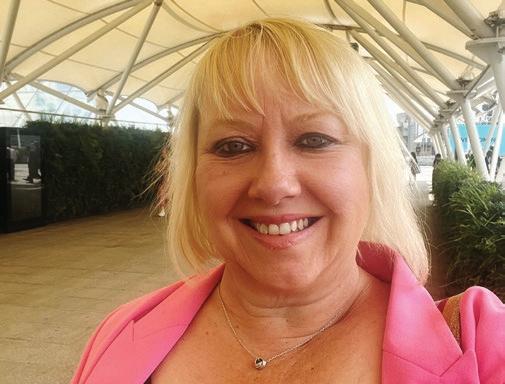
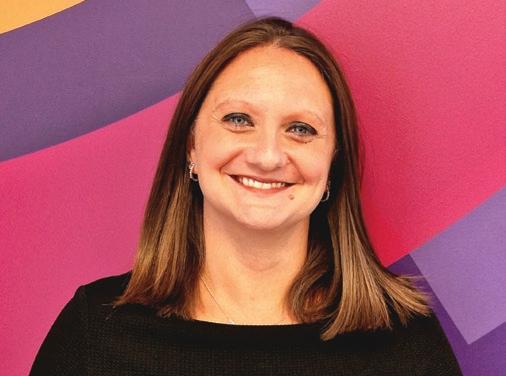

JOINS: CTM
AS: Senior Manager
FROM: Serko
Alison Carpenter has joined CTM as Senior Manager Global Technology Strategy & Innovation to manage third party technology partners. She was previously a contractor at Serko.
ALSO ON THE MOVE... >> HRS has appointed Will Pinnell as Senior Vice President and Pauline Robin as Vice President, Procurement Consulting & Supplier Relations, both for the Americas region >> COLLINSON has named Rishi Kapoor, previously with British Airways, as Chief Transformation Officer, based in London >> Minor Hotels has appointed Ian Di Tullio as Chief Commercial Officer. He was previously Chief Commercial Officer Europe at Accor >> Rosewood Hotel Group has appointed Joerg Zobel as Chief Operating Officer and Ingrid Chen to the newly-created role of Vice President of Brand Strategy and Marketing >> The Doyle Collection has announced the appointments of Katherine Gordon as Chief Commercial Officer and Anna Abbott as Chief Marketing Officer >>
The Dorchester, London thebusinesstravelmag.com
OCTOBER 16 2023
BUSINESS TRAVEL LUNCH FORUM SERVICE LEVEL AGREEMENTS
The Caledonian Club, London thebusinesstravelmag.com
OCTOBER 30-NOVEMBER 1 2023
ABTA TRAVEL CONVENTION Lujo Hotel, Bodrum abta.com
NOVEMBER 14-16 2023
GBTA EUROPE CONFERENCE Hamburg europeconference.gbta.org
DECEMBER 4 2023
THE BUSINESS TRAVEL DINNER CLUB Carlton Tower Jumeirah, London thebusinesstravelmag.com
DECEMBER 7 2023
ITM TRENDING SUMMIT Melia White House, London itm.org.uk
Higher costs, a stronger focus on sustainability and the expectations of a new generation of travellers are prompting small and medium enterprises to change the way they approach business travel. In this special report, we explore the latest trends and share advice from the experts. Read on...

The rush by SMEs to fill their business pipeline immediately post pandemic – often with flagrant disregard to prices – is in stark contrast to what's happening in 2023 as increased cost control has gripped the sector.
“our sme clients are analysing every cost down to the nth degree; they’re looking at every extra as the cost of living crisis is really biting,” says paul Ford, Business Development manager at Agiito.
smes are pausing to look closely at the reasons for travel. ”it’s about purposeful travel, which helps with sustainability too,” says Donna Joines, head of corporate traveller Uk
typical is frequent traveller Floran hoven, co-founder of keyNest: “i've been hopping on trains for shorter distances between offices (my favourite one being eurostar), not only reducing my carbon footprint but also for cutting travel time substantially. For a london-paris trip, the train saves me over three hours of time, compared with a flight.” teams/Zoom and Webex virtual conference platforms sort internal team meetings and the like but when only faceto-face will do, for relationship building and clinching deals for example, the trusty tmc is stepping in to control and manage travel costs.
kieran hartwell, managing Director corporate at travel counsellors, an sme specialist, has witnessed multiple trends
this year. “We’re seeing extended trip durations, a shift to rail for european destinations, an increase in the use of apartments, and more requests to rent electric vehicles and shared ride services.”
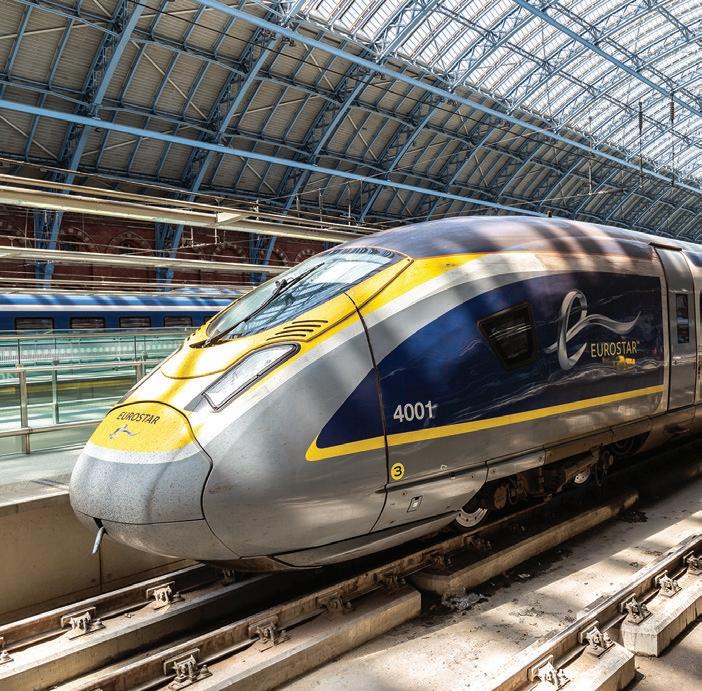
Business traveller James smith, founder of travel-lingual, is keen to balance frequency and cost. “While in-person meetings are still essential for building relationships, using technology to automate processes and minimise travel days is becoming more popular.”
increased costs in the marketplace are driving much of the change in behaviour. hikes in hotel rates are making a nonsense of rate caps, forcing constant reviews. some tmcs are warning that average prices in london, for example, will shoot up from

rising prices are forcing smes to get a tighter grip on their business travel but it’s a fine balance, says Gill UptonEurostar

















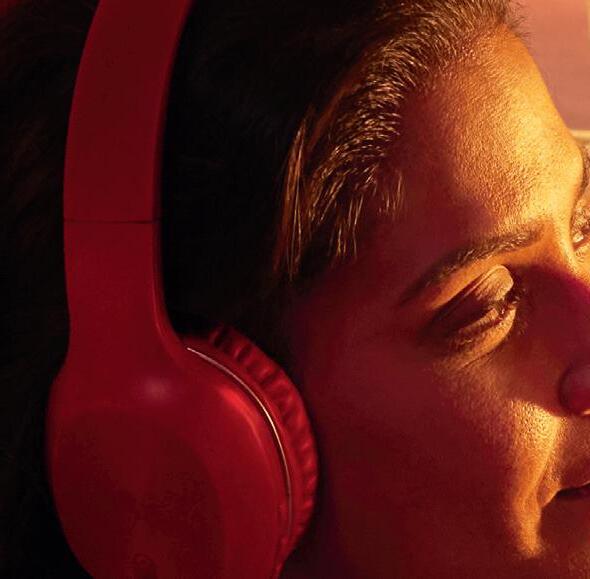

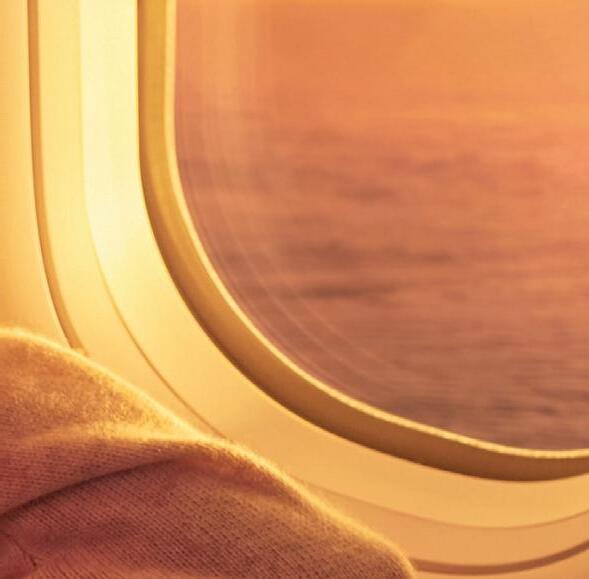

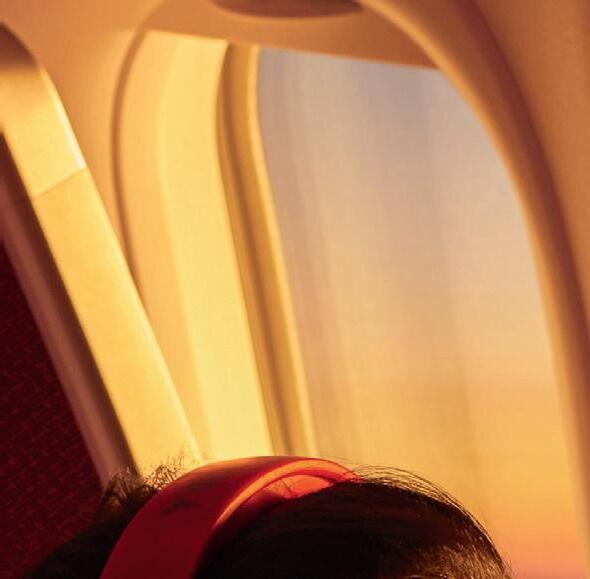
Connect seamlessly to more than 200 US destinations with us and our partner Delta Air Lines, including 9 flights a day from London to JFK. Israel and far-flung destinations across Asia and Africa are also just a direct flight away, with daily services from the UK. And because we’re part of the SkyTeam alliance and a vast network of other partner airlines, we can take you to more places around the world than ever before.
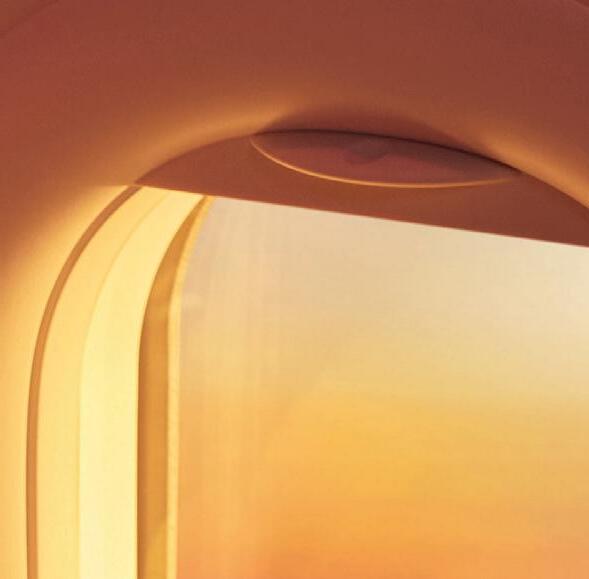
Enjoy the ultimate departure experience from our home at London Heathrow Terminal 3. As your car pulls up to our exclusive Upper Class Wing, we'll be ready to greet you, check in any bags, and give you your boarding pass. Then glide through our private security channel straight to the Clubhouse, where you can finish off those last minute emails or order something delicious to eat. You can even get in a pre-flight workout on our Peloton bikes (with a runway view, of course). When you return to London Heathrow, enjoy a cooked breakfast and a refreshing shower at our Revivals lounge before starting your business day.
Different ways to tailor your experience
With Virgin Atlantic Economy, we positively encourage you to be choosy. Select Classic or Delight, and relax, secure in the knowledge that whichever you go for, you’ll get a choice of delicious threecourse meals, complimentary drinks and snacks, and in seat power to keep your gadgets going. Or take some time out to browse Vera, our outstanding inflight entertainment system that’s brimming with must-see TV and films.
Economy Delight: Enjoy Premium Check In and priority boarding, plus an extra legroom seat.
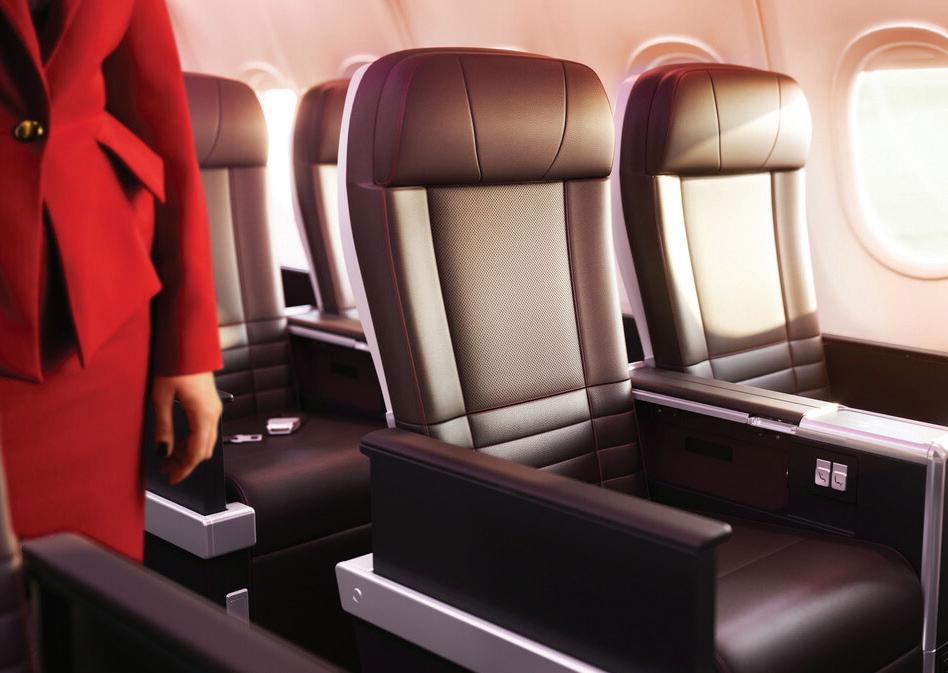
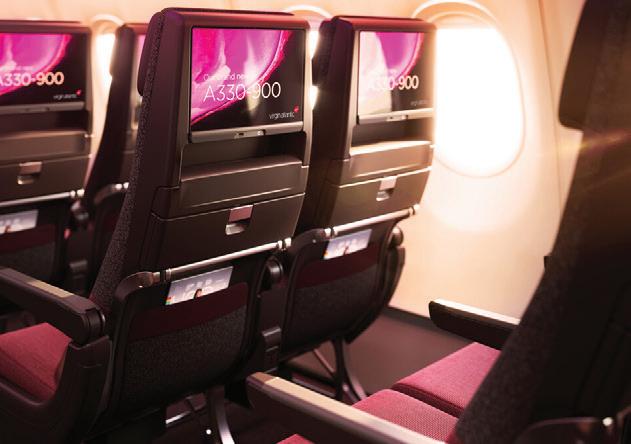
Economy Classic: Choose your seat in advance for free and take one 23kg checked bag.
Premium comfort with all the perks
The difference between a good flight and a phenomenal one is the details – the unexpected extras that enhance your experience and make you smile.
• Select your seat free of charge anytime from 331 days before you fly
• The airport’s a doddle with dedicated check in and priority boarding
• Experience personalised service with your own Premium cabin crew team and bespoke food, beverage and snack options
• Every seat comes with an adjustable headrest and footrest for maximum comfort whilst working
The perfect retreat at 30,000 feet
With Upper Class, we’ve thought of every last detail of your journey so you don’t have to. Step onboard to discover your private and spacious suite with direct aisle access.
• Breeze through the private security channel in our Upper Class Wing at London Heathrow
• Relax and unwind in our award-winning Clubhouse
• Onboard, enjoy fine cuisine from the comfort of your own spacious suite
• Our adjustable ergonomic seats convert to fully lie flat beds
• Exclusive social spaces, onboard WiFi and in seat charge points make working onboard a breeze
• Complimentary cosy Sleepsuits on night flights
We believe that the perks of business travel should go way beyond work. It’s why we have Virgin Atlantic Flying Club – an effortless way to earn points and gain loyalty status, and use them for rewards like flights, upgrades, hotel stays, car rentals, experiences and much more, with us and our many partners.
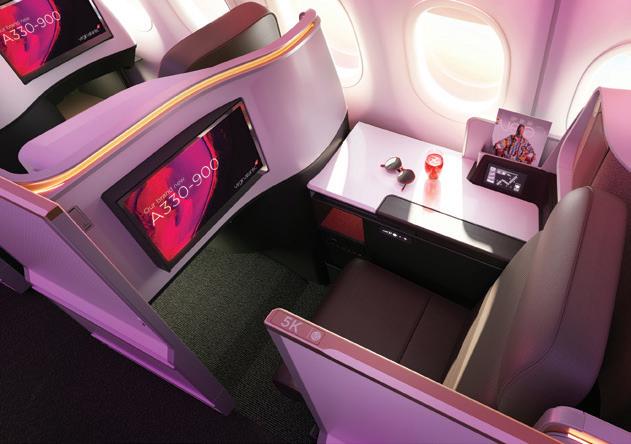
£160 to £190 by the end of this year.
“the cost squeeze is valid for all sizes of business so it’s about cost increase minimisation,” says scott Davies, ceo of itm. “smes are in cautious mode as much as the larger travel buyer, as there is no part of the travel ecosystem that hasn’t shot up in cost.”

Despite grappling with connectivity, distribution and technology industry issues, Davies says buyers are ever-pragmatic, knowing that there will always be something to wrestle with and that inevitably, solutions or workarounds are found.
traveller Amanda harper, founder of Unplugged essentials, travels for business every two months or so, and is now using non-traditional accommodation such as Airbnb and sharing services to split costs.
“this goes beyond group ridesharing but also sharing living arrangements during the business trip,” she says.
one-day trips are a thing of the past and trip-maximisation is the new norm.
keyNest’s hoven says: “i've learned to combine my trips, so i get the most out of each journey by meeting clients, partners and attending conferences all in one go.”
Another traveller, elena Nunez murdock, board member at smA, says: “i now limit my travel to once a month. i will stay in a city for twice as long – six days instead of three days or less.”
the company’s pre-pandemic travel spend of £300,000 has reduced to nearer to
£200,000, thanks mostly to the wider acceptance of virtual meetings.

longer booking horizons are another trend. “the trend is increasingly four to six weeks in advance, compared with two weeks or less during and immediately after the pandemic,” says Abby penston, ceo of Focus travel partnership.
“sme clients recognise that the further they can plan and book advance, the more likely they are to gain cost savings.
“But they are also taking advantage of various new slightly higher priced airfares, which allow for more flexibility for date or time changes and potential refunds over the more standard historic fares, which once booked are totally inflexible. The expectation and need for flexibility is becoming the norm," she explains.
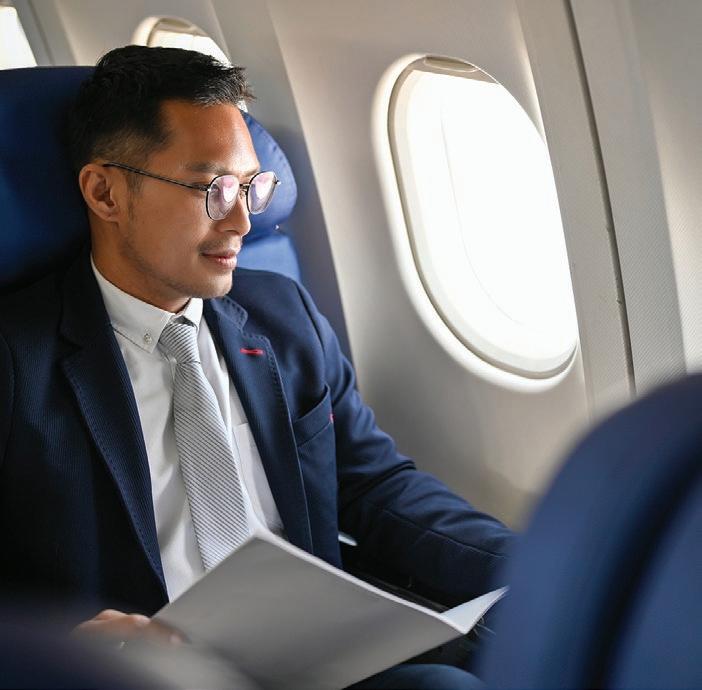
travel counsellors’ hartwell notes that there is a tipping point of around an annual travel spend of £2million when belts are really tightened. the bulk of the group’s clients spend up to £500,00 a year, in most cases with only a verbal policy.
At the other end of the sme scale, Good travel management commercial Director, laura Busby, cites the example of one large accounting firm that cut its travel budget by 56%. the tmc created a new travel policy with tighter approvals, introduced reason codes for short-haul trips, banished onenight stays, increased the number of threeand four-night stays and switched to virtual communications for all internal meetings.
purposeful travel may be the buzzword now, to ensure that only essential travel takes place, but employers are also

Our SME clients are analysing every cost down to the nth degree; they're looking at every extra as the cost of living crisis is really biting”Flexible fares Counting costs


































































cognisant of the competitive job market and staff retention, so using carrots rather than sticks to shape travel behaviour.
“it’s a fine balance they’re striking,” says corporate traveller’s Joines. “they’re trying not to restrict, otherwise travellers will go off and book it themselves out of policy. they’re trying to educate travellers on what they’re trying to do as a business.”
Joines stresses the importance of explaining clearly why the policy rules are there. “Give examples of what you can book without needing approval,” she says, adding that 95% of approvals are agreed.
“clients embed the new policy into the online booking tool without ruining the travel experience and guide the travellers with recommended spend and rate caps,” she says.

“they show what the typical spend is in a certain area at a particular time and show the content. travellers then have total visibility and options.”
Busby agrees, particularly for those Gen Z employees. “You can’t beat them with a stick,” she says. “the travel experience is important for younger travellers. they want a niche style of property to stay in and perhaps to add on a weekend trip to their business trip.”
Business traveller Jon morgan of Venture smarter has noted the rise in bleisure travel. he reckons that it has encouraged companies to explore creative ways to incentivise and reward their employees. “this approach not only enhances worklife balance but also boosts employee satisfaction and productivity,” he says.
smes are also looking closely at the number of travellers per trip, generally cutting back on a business trip that used to take five salespeople to two to do the pitch.
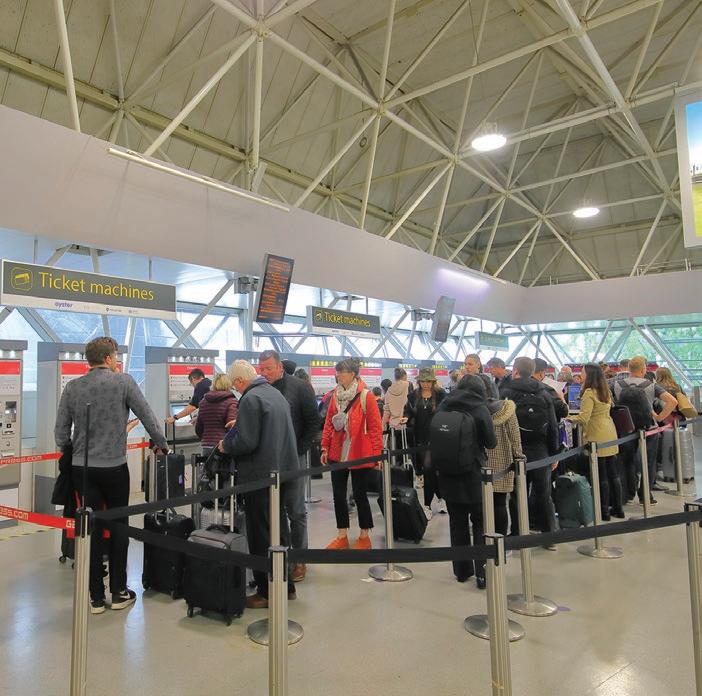
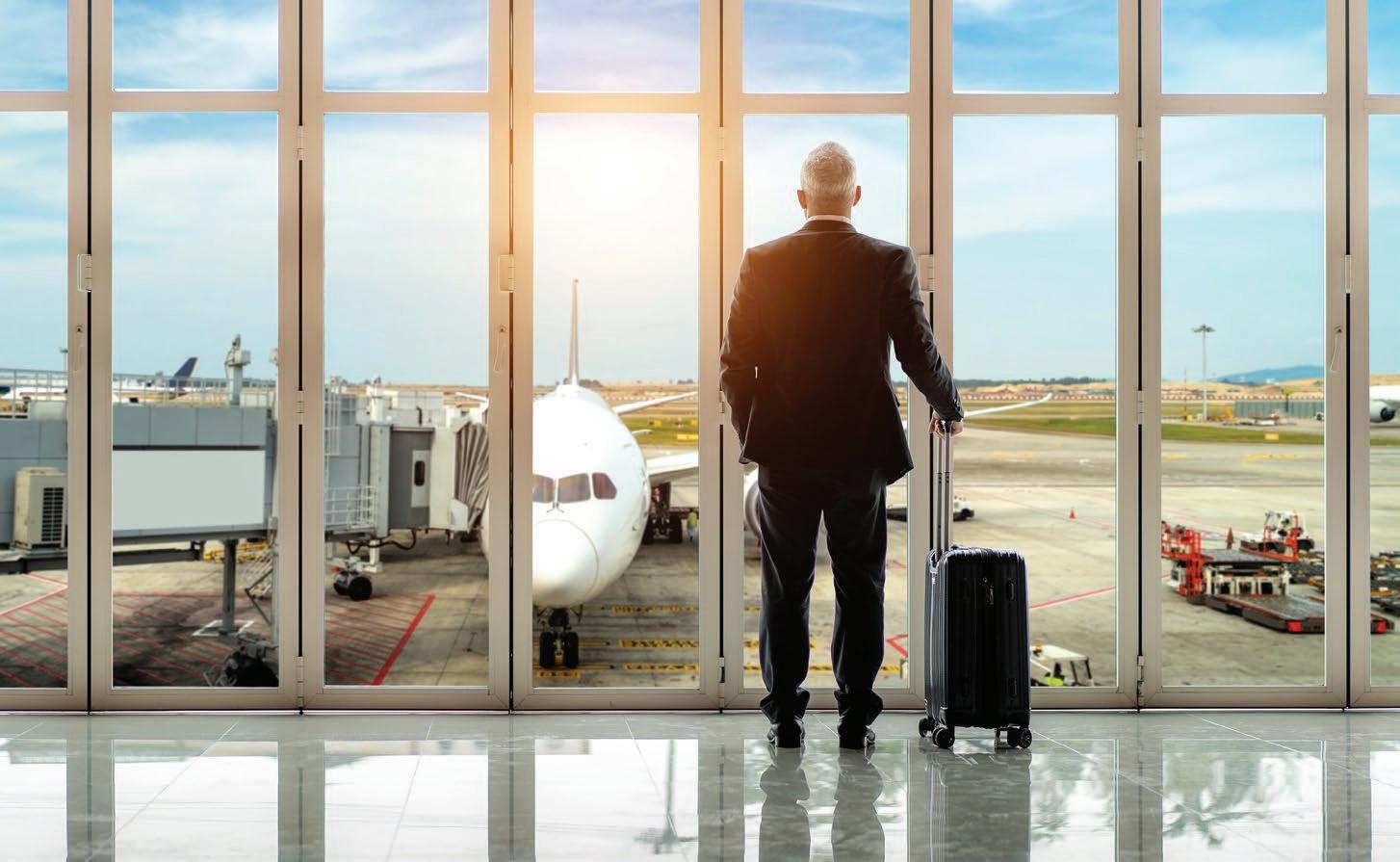
Unsurprisingly, organisations in the unmanaged space have been beating a path to the doors of tmcs, realising they need to meet traveller duty of care as well as getting better deals.
“it’s going absolutely crazy in that world,” says Busby at Good travel management.
“Yesterday we had 10 new enquiries through our website and we’ve signed 47 new clients since the New Year who spend under £1000,000 per year on travel. 2023 will be our best ever sales year on record.” the same picture is reflected across the Advantage membership. “We have seen tmcs reporting sales and, in some cases, transaction numbers matching and even surpassing those of before the pandemic.
A key factor in these figures has been new business from companies which have traditionally been ‘unmanaged’,” says Guy snelgar, Global Business travel Director.
For Agiito, unmanaged business will represent 20% of what the tmc brings in this year, compared with a normal year say pre-2019, when it accounted for only 6-7%. most unmanaged companies have no budget and no idea what they spend on travel. “they just spend what they need to get the job done,” says Agiito’s Ford. thankfully smes’ cost focus has skirted around questioning the 5% transaction fee and there's a general acceptance.
“it’s a real education piece. We say, ‘let’s look at the 95%, not the 5%’,“ says Busby. Adds itm’s Davies: “Quibbling over a 50p transaction cost is not the way to go.”
Organisations in the unmanaged space have been beating a path to the doors of TMCs, realising they need to meet duty of care as well as getting better deals”In line with policy Sharing economy






Did you hear the one about the business traveller who called up his TMC and asked for a return ticket. “Where to?” asked the consultant. “Right back here,” came the reply.
Like the execution of this joke (the best of a bad bunch of business travel-related jokes I could find on Google, and trust me I tried), timing can make a big difference when it comes to getting the best prices for flights, hotels and other trip expenses.
Although it’s not always possible to pick and choose when a trip is taken, or when it’s booked, if either of these is flexible there could be substantial savings to be made.
Get it right and you’ll be laughing all the way to the next meeting with your finance director. Get it wrong and you’ll be heckled out of the boardroom.
Unfortunately, it seems there’s no magic formula to knowing precisely the cheapest time to book air travel, but based on the experience of a number of industry experts, there are some general rules.
“Looking at the most recent data from Advito’s Airfare Predictor tool, as a guideline we recommend booking 14-plus days in advance for domestic trips and 21-plus days for international,” advises Ryan Hohag,
Managing Consultant Advito Air Practice. But he warns: “There are, perhaps not surprisingly, many exceptions and nuances to this guideline.
"The optimal booking window can vary by region, origin and destination, airline, cabin, day of week and a myriad of other external factors influencing supply and demand in the air industry.”
Agiito Head of Customer Insight, Lone Konradsen, says for UK domestic flights, booking lead time is the main influencer of price. “The sweet spot is booking 15-plus days out, where flights on average are 33% cheaper than booking within two days of travel,” she says.
“However, as a minimum try and book seven or more days before travel as the price rises steeply after that point.”
For European flights, she recommends the same 15 days-plus lead-in time, when fares can be up to 45% cheaper, but points out that with international flights it’s not so clear-cut. “There are a lot more factors to consider, such as choice of airline and class of travel,” she says.
Data crunching by airfare and hotel rate tracking specialist TRIPBAM found that, broadly speaking, a significant amount of savings are found by booking flights 21 days or more in advance.
With SMEs under increasing pressure to keep costs down, knowing when to book and when to travel is more crucial than ever, says Bev Fearis
The time to book is when you know what your plans are. If you leave it longer, the price may change, but you can't be sure whether it's going to go up or down”
Many TMCs argue that the rule for air fares is simple: booking travel as far in advance as possible will give you the best chance of keeping the cost down.
Scott Pawley, Managing Director, Global Travel Management (GTM), advises: “The time to book is when you know what your plans are. If you leave it longer, the price
may change, but you can’t be sure whether it’s going to go up or down.
“The risk of delaying booking is greater on long-haul flights than short haul, as the price increases can be significant on longer flights. In our experience, nobody ever says 'I’m glad I waited’.”
Spencer Allen, VP Client Solutions, TakeTwo, says for long-haul flights it sees
savings upwards of 60% on fares booked in advance, with average savings overall more than 20-25% across a typical corporate air programme.
“Currently for European flights we are showing on average a 34% reduction in average ticket price comparing bookings made zero-seven days in advance to bookings made 14-plus days in advance,” he says.
Using the same time frame, UK domestic flights are showing, on average, a 19% reduction and on international flights the figure rises to 52%.
The higher the fare the bigger the potential saving, so the benefits of booking early can be even greater for premium classes.
“Booking Heathrow to New York return when the flights are released would cost around £3,000 return, against booking three to four weeks before your travel date when you could be paying upwards of £8,000 return,” says Abby Penston, CEO of Focus Travel Partnership.
“However, it's also essential to keep an eye out for special promotions or fare sales that airlines may run throughout the year. Carriers implement promotional fares when they need to boost a route. Last-minute deals can sometimes offer attractive prices, but they might not be suitable for travellers with fixed plans or specific preferences.”
Of course, business trips don’t always go to plan, so travel managers need to weigh up if it’s worth paying more for fares with greater flexibility to allow for any possible changes and cancellations.
“We help clients make these decisions by looking at their percentage of changed bookings,” says Angela Marston, Account Manager, Gray Dawes Travel.

“If a client doesn’t have a high rate of exchange tickets, it may be prudent for them to book more restricted tickets and take the hit on any penalties rather than pay more to

purchase fully flexible every time and never use the benefit of the flexibility.”
Pawley at GTM believes in most cases it’s not worth paying the extra. “Nine times out of 10, I would recommend going for the lowest fare which allows you to make changes at a cost. Don’t be afraid of a cheaper fare.”
Allen at TakeTwo says an advance purchase booking, even factoring in change fees and additional collection, can often work out cheaper than purchasing fully-flexible tickets.
“Our studies have shown that travellers who request a fully-flexible ticket generally stick to their chosen flight times in more than 80% of cases, negating the need for a fully-flexible fare,” he argues.
Advito's Hohag says post-pandemic the gap between refundable and non-refundable ticket prices is shrinking.
“The conventional wisdom around best practice in buying behaviour is not as reliable as it used to be. Airlines have eased fare restrictions to accommodate the increased demand for flexible and last-minute bookings
and, depending on the airline, it is becoming more common for travellers to find flexible fare options much further down the fare ladder.
“We have seen instances where that price gap is smaller than the change fee, which means some travellers may ultimately be better off booking the refundable fare.
“It’s important for travel managers to understand how often, and in which markets, they are likely to incur more change or cancellation fees and to weigh the additional cost against booking behaviours in those markets, and to consider using price assurance tools to mitigate some of the risk,” says Hohag.


Another top tip, says Penston at Focus, is to book with an airline with a more frequent schedule. “That way if you do need to change you are more likely to get availability.”

TMCs also have the ability to hold flight options for a limited time, while other aspects of the trip are confirmed. “This allows a guarantee of the quoted fare and avoids risking a fare hike as availability reduces and the lower fare classes are reserved,” says TakeTwo’s Allen.
Data specialist Travelogix recommends analysing past travel data to identify patterns and common reasons for last-minute changes.



“Understanding the trends can help you make more informed decisions in the future and potentially anticipate changes in your travel plans,” says CEO Chris Lewis.
He suggests corporates use this data when negotiating with preferred suppliers. “These agreements can often include more favourable change and cancellation terms, as well as potential discounts for your organisation's volume of business,” he says.
While booking in advance is generally recommended for flights, the same rules don’t apply for hotels.
“The greatest amount of savings can be found by waiting as rates tend to drop the closer you get to check-in,” says Juliette Jackman, TRIPBAM Head of Business Development EMEA.
“For hotels the greatest number of lower rates are found in the three- to five-day window before check-in.”
Changes to travel plans rarely occur on

The optimal booking window can vary by region, origin and destination, airline, cabin, day of the week and a myriad of other external factors”









the day of check-in, she adds, “so there is little value in having a same day of check-in cancellation policy. Better to pay a lower rate for a stricter cancellation policy than accept a higher rate for the flexibility”.
Ambra Christie, Vice President for BCD Travel Hotel Solutions, points to a shift in the last few years. “We've seen a real trend towards lower average booked rates achieved by booking last minute,” she says.
“While this will not always hold true, on average we note the booked rate is approximately 14% lower globally when booked on the day of check-in versus booking three weeks or more in advance.”
According to BCD’s rate analysis, the highest average booked rate is actually for reservations made between 15-21 days in advance – 15% higher than when booking on the day of check-in.
“Our booking and shopping data includes rates from third party suppliers, such as
booking.com and Expedia,” says Christie.
“It’s through these hotel booking aggregators where we tend to see the lowest rates being distributed as the checkin date nears, with hoteliers unloading distressed inventory at their lowest rates.”
But she stressed that in Europe, the patterns are “more of what we would traditionally expect” with average rates getting progressively lower the farther in advance the booking is made.
Lack of supply in some European cities, including London, restricts potential savings because hotels are able to hold firm on their rates. But in others with higher supply, such as New York, savings can be found."
“The best booking windows varies by location,” agrees TRIPBAM's Jackman.
Take your cue
Location is even more of an influencing factor if you’re looking to use the timing of your business trip to cut your travel costs.
“If you’re travelling for business to a place that's also a leisure destination, then avoiding those tourist seasons would help lower costs,” suggests Jackman.
“Travellers can save hundreds of pounds by shifting their hotel booking dates to avoid high tourist seasons.”
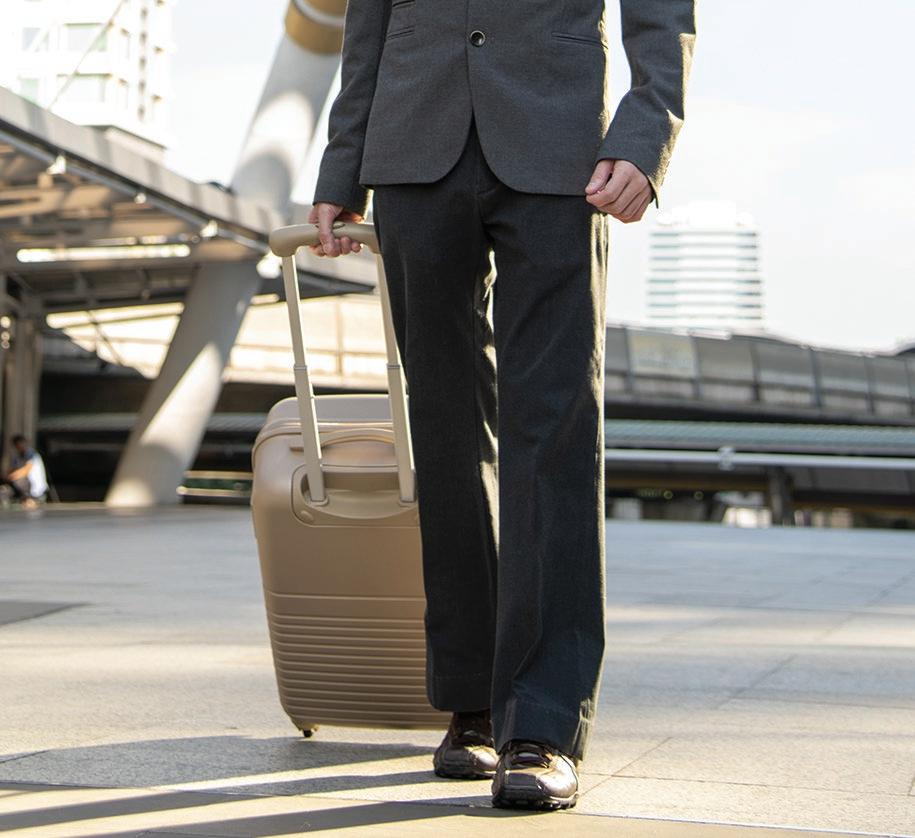
Factors such as school term times and climate, which influence leisure travel, might not matter as much for business travel.
Penston at Focus gives an example: “Flights to Dubai are way cheaper during the UAE’s very hot summer months (May to October), when air fares and hotel rates drop dramatically, compared with November to April.”
Shifting the days of travel and trip duration can also help reduce costs.
“Don’t travel out on a Monday and back on a Friday for a US trip as many airlines still operate the Saturday night stay rule,” says Penston. “If you can travel out on a Saturday and back on the Friday, the air
fare will be less and the savings will more than cover the extra hotel nights needed.”
It could also be beneficial for that traveller’s wellbeing. “Flying on a Saturday before a Monday meeting would give them time to arrive and adjust to the different time-zone before the working week begins, and it also saves the company travel costs,” Penston adds.
However, an employee with family commitments may be unable to travel at weekends. “There needs to be a mutual give and take on both sides, to work together for the benefit of the business.”
Allen at TakeTwo says in some cases, travelling a day earlier or later can more than halve the price.
“Including a Saturday night stay on most long-haul flights, particularly to the US, can significantly reduce the cost of flights, sometimes by more than 50%,” he says.
Booking trips during school holidays can also add a minimum of 25% or more to the trip cost, notes Pawley at Global Travel Management.
Based on historic data, TMCs will know the cheapest times to travel, down to the day.
Marston at Gray Dawes explains: “Hotel room prices peak on Tuesdays and Wednesdays due to demand, so we often suggest to clients that they have their meeting on a Monday or a Thursday. We share this information with clients based on market and in-house analysis.”
A good TMC will also know which major events are happening in a destination that would drive up prices.
“Prime examples are years when World Cups, Olympics and other major sporting or music events are being held in a particular city,” says Penston.
Nine times out of 10, I would recommend going for the lowest fare which allows you to make changes at a cost. Don't be afraid of a cheaper fare”
IT’S MORE THAN JUST A FLIGHT




.





Thoughtful details and special touches make every trip memorable.






Getting to grips with RFPs isn’t easy, especially for SMEs, but with the right approach, Neal Baldwin finds it could be as easy as another three-letter acronym

Whisper it quietly, but there’s a secret club in the world of travel management and just one simple bit of knowledge makes you a member. ‘RFP’? Forget any notion that this much-talked-about acronym stands for ‘Request For Proposal’. Once you’ve been around long enough in this industry, the true meaning is revealed. It’s a ‘Right F****** Pain’, more like!
But it doesn’t have to be that way. Savvy buyers are waking up to the fact that starting relationships well makes them more fruitful and harmonious – mainly due to an industry realisation that in the past the entire process had disappeared into an endless rabbit hole of questions. As best practice emerges, RFP is now as simple as ABC.
Understanding – and being able to convey –what you want to achieve from the RFP process seems pretty obvious, but it’s a surprising early fail for many businesses.
TMCs are an obliging bunch but do need clear parameters if they are going to make a real difference to any travel programme. Do you want better reporting or are you exploring new pricing models? Maybe sustainability in the supply chain is the new watch word, or you’ve simply had poor service in the past?
One big gripe often cited is that companies present a multi-pronged list of requirements and seem to want the world from their potential new partners, but in actual fact are only really interested in reducing cost. Even worse, they are using the opportunity to re-tender their contract as a ‘beauty parade’, just to put pressure on their existing provider. Sometimes, this is justified as being part of the company’s governance process, but if so TMCs everywhere will say avoid a formal RFP altogether.
Travel Trust Commercial Director Paul King saves his ire for those with issues of expense
management integration. “How do you manage expenses?” he asks. “If it’s Concur and you use its OBT, will you seriously consider alternatives or are you just looking for another agency to provide exactly the same tool whilst expecting different results?”
Whether your company is new to the business of managed travel or you’ve got road warriors around the globe, TMCs and suppliers love to have a feel for their potential new clients. ‘Culture’ is a broad and pretty nebulous thing to pin down, but think of it more about how you want your relationship to progress.
Always start with your baseline needs and then consider how a travel policy should be shaped to fit requirements of staff. Perhaps you want to have rules about costs or booking different classes, and maybe exceptions for certain employees to operate out of policy? Has adherence to policy been a real problem in the past? Many companies now allow more flexibility so travellers can book online, but you may have multi-leg, multi-country trips that require a much more consultative approach – this is the typical pinch-point that often causes issues between client and provider.
TMCs are the ringmasters of the travel circus. As well as managing suppliers in the air and on the ground, your new partner will oversee payment and approval, offer sleek booking tools, can provide heaps of useful data and even keep an eye on traveller wellbeing. That’s an impressive list – but how much of it do you need?

It’s a question the BTA likens to picking a dating app. Are you more Tinder (in search of fleeting hook-ups on a casual basis) or Bumble (you’d prefer something a bit more meaningful and in-depth)?
The basic rule is understanding how important travel is to your operation. The more staff travel to win business, the more strategic your supplier relationships need to be and the more support you’ll need. This is another area where clients can get the RFP wrong.
“It is important that a prospect communicates what level of support they expect, and truly understands what support is needed. [They need to] listen to the TMC,”
says Travel Trust’s King. “A £1.5m spend account does not require a team of five agents, two account managers and senior level access, yet the number of clients that expect a large team to support a small spend is extremely common."
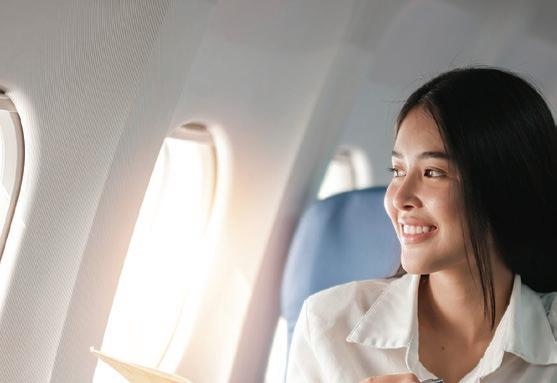
Shaping your RFP isn’t an easy task, but sharing the burden helps. Getting input right across your organisation gives a true picture of the varied requirements of stakeholders in all departments. A common mistake is that budget holders, bosses and frequent travellers are consulted (that’s great, by the way), but that others at the sharp end are forgotten.
Equally important are PAs (who do plenty of the booking); IT staff (who will likely be the people implementing third-party technology such as booking tools); and those in HR and compliance/security (who will have valuable thoughts on employee safety and wellbeing).
To get the best possible insight, the key is to get the internal communication right –explain to staff why you are going to RFP and why their input will be valuable. At the end, try to have a top 10 list of requirements, listed by importance. It’s a great starting point for conversations with providers.

Not all TMCs are the same. While they will all support and manage your travel, how they do it can vary considerably. Also, they come in all shapes and sizes, with a welter of specialisms. To narrow down your potential suitors, it’s worth keeping an eye on the trade press and getting out to industry
Are you more Tinder (in search of fleeting hook-ups on a casual basis) or Bumble (you'd prefer something a bit more meaningful and in-depth)?”
events. The industry and its technology is constantly evolving so it's important to keep a finger on the pulse of what’s happening.
Your top 10 ‘wish-list’ can go a long way to rule bidders in or out. When you’ve settled on a few, make sure that you make time for face-to-face conversations (protected by NDAs) to really find the best fit. TMCs will want to know about your spend, existing travel policy and compliance, geographical footprint, culture, payment solutions and technology used.

Information overload
Whether you’re issuing an RFP or responding to it, the aim is the same – to create a partnership that’s fit for purpose. The best documents explain objectives and the expected outcomes in a simple, clear and concise manner. What you absolutely don’t want is responses running to hundreds of pages that are impossible to read and compare.
Take a matrix approach, but set your template up in a way that gives respondents the best chance to get their message across – thoughtful questions are better than running some sort of tick-box exercise.
Efforts by business travel trade bodies to help buyers improve their RFPs are gradually reaping rewards, with more companies now applying the ‘So what?’ test to their requests, according to industry leaders

buyers tend to be looking for more ‘consolidated approaches’ to their programmes, with approval processes, duty of care and making better use of data/analysis all high on the RFP hot-list.
be the most dynamic of documents,” says BTA
“We have to be honest and say RFPs don’t tend to be the most dynamic of documents,” says BTA Chief Executive Clive Wratton. “In the past there's been a trend to make them very time-consuming. You can be asked to go into huge amounts of detail and most of it is unnecessary.


“It is something the industry has struggled to break out of, but we are now getting to a point where the personality of people involved, and the companies they work for, is coming through and that’s a good thing. The process is becoming more positive.”

FCM Travel UK and Ireland MD Andy Hegley, meanwhile, says he has seen a marked positive shift towards companies involving more key stakeholders in initial RFP talks.
“I think we’ve seen the written part of RFPs become a bit too formulaic as companies have tried to streamline, and so I’d like a shift back to a place where there is a bit more opportunity to offer supporting information,” he explains.

The BTA and ITM have both lead the charge, each producing free guidance for members on getting the most bang from the best RFP.
break out of, but we are now getting to a point charge, each producing free guidance they analyse it across responses?” says Head with, the easier the process will be for





























“Buyers need to apply the ‘so what’ to the questions they have included. What will the answer give them and how will they analyse it across responses?” says ITM Head of Programme Kerry Douglas. “If the answer is ‘not sure’ then don’t ask. The more RFPs can be streamlined to only include results the travel manager can do something with, the easier the process will be for all parties. This also leads to much easier review and analysis.”
Aside from the practicalities, Douglas says
“That said, I’m cheered that clients are getting a much wider cross-section of people involved now, which gives us a better insight into their needs. And often that means quite big meetings with a fair few people in them – talking it through certainly adds clarity.”
As for big live issues, Hegley believes NDC and sustainability continue to dominate, along with duty of care.


“NDC takes a lot of explanation, especially when it comes to challenges post-booking," he explains. “We’re also seeing more businesses concerned about their roadmap to sustainability. It's often on their corporate agenda and driven from the top. Also interesting is duty of care and traveller wellness. We are being asked much more about pre-travel advice and our ability to share realtime information with travellers. It’s not all about price too – I’m cheered to see that lots of clients want to put benefits in for employees; they want them to travel well because it will improve results.”

THE HOTEL Part of the multi-billion pound regeneration of Battersea Power Station, this much-anticipated hotel opened in February and is managed by Park Plaza Hotels. Masterminded by Spanish artist-designer Jaime Hayon, it’s packed with quirky, bold works of art –paintings, prints, sculptures and tapestries. A brand-new Northern line station is a five-minute walk away.
THE CHECK-IN Housed in a rounded new-build structure, the hotel has a unique windy entrance with a matching curved lobby at the end. Once we'd finished admiring the decor and taking the obligatory instagram pictures, the young trendy reception staff welcomed us like old friends before we headed up in the glitzy brass lifts.
THE ROOM The 164 rooms come in five categories and we were lucky enough to get the top one – the Masterpiece Suite, on the 14th floor. Highlights included a kitchen corner with a well-stocked wine fridge and a drinks cabinet with premium spirits, a
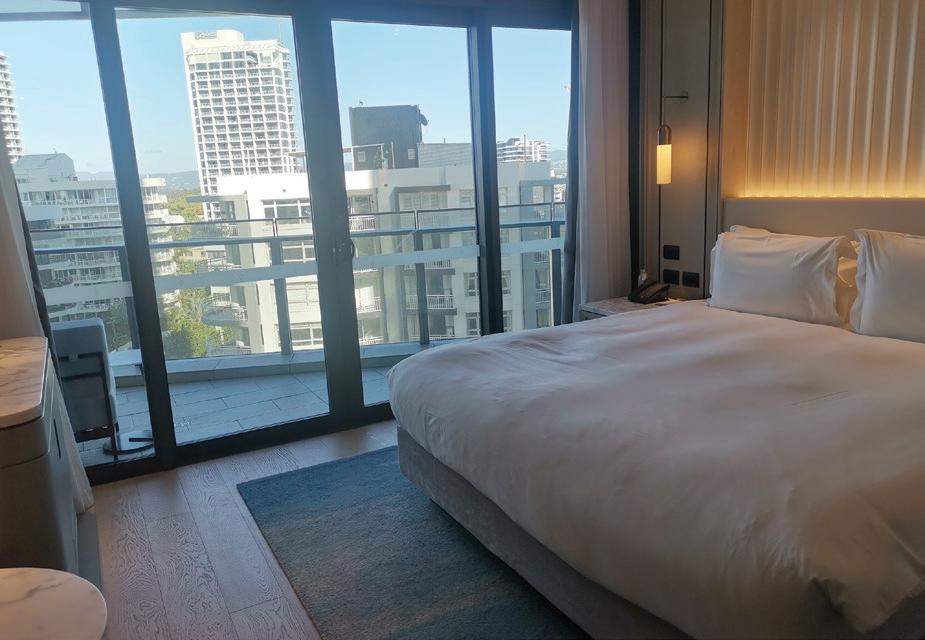
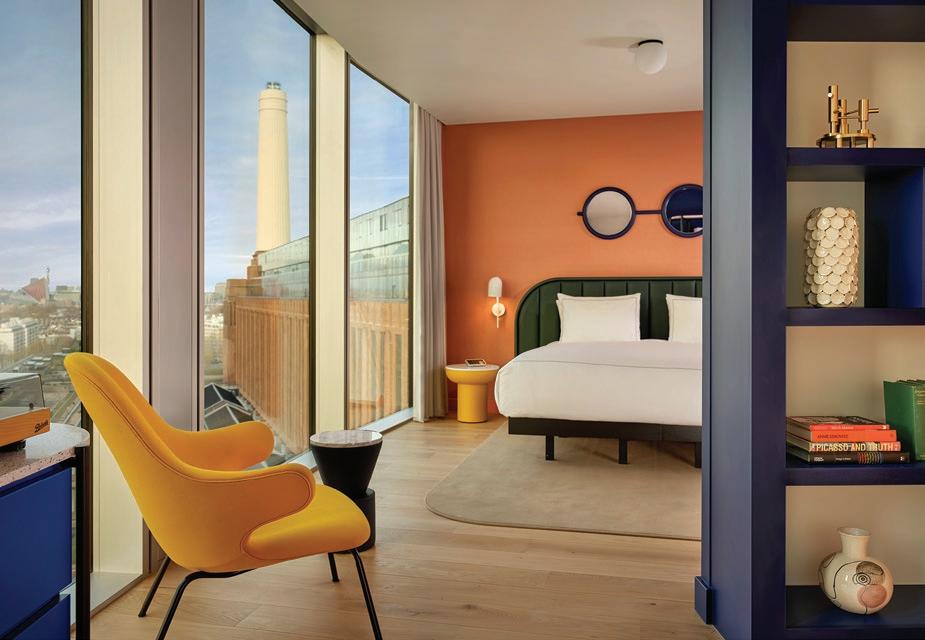
retro record player with a selection of vinyls, a giant mirror and incredible views of the power station and the rooftop gardens of the surrounding swanky apartments. Like all the bedrooms, it also comes with a Robert's Radio Bluetooth digital radio, a 49-inch smart TV with Chromecast, international plug sockets, rain shower, laptop size safe and coffee and tea-making facilities.
THE FACILITIES No stay here would be complete without a few lengths in the infinity rooftop pool or a soak in the adjacent hot tub, looking out to the iconic towering chimneys. They're for guests only, but also a popular selfie spot for visitors to the rooftop bar. More breathtaking views can be enjoyed through the giant windows of the double-heighted 15th floor restaurant, JOIA, and its equally sumptuous bar, down the show-stopper staircase. In the basement, there's a spa with a state-of-the-art gym and beauty and treatment rooms. On the ground floor, TOZI Grand Cafe opens for
NO STAY HERE WOULD BE COMPLETE WITHOUT A FEW LENGTHS IN THE ROOFTOP POOL
breakfast and stays open all day. The smoothies were a breakfast highlight. There are changing art exhibitions too.
THE VERDICT Fun, funky and with fabulous views, you'll want to stay longer and you'll wish you could invite all your friends for a party in the Masterpiece Suite. (Well, I did anyway!)
THE DETAILS Rooms from £400, artotellondonbattersea.com
THE HOTEL The hotel occupies three 'towers', with 169 hotel rooms and 170 residences overlooking either the Pacific Ocean or inland to the region’s hinterland. Situated between Surfers Paradise and Broad beach, this major development opened in November 2022. It's conveniently located between Brisbane International Airport - about an hour's drive - and the Gold Coast airport (30 minutes).
THE CHECK-IN I arrived early on a quiet Friday morning and was greeted at the revolving door. As the only guest in the expansive cool and airy lobby, I was dealt with swiftly, with a smile and plenty of chitchat. I was handed a map of the property and walked to the futuristic elevators. The lobby features a UK phone booth painted baby pink and dressed with flowers – a nice touch.
THE ROOM My Superior room on the ninth floor didn't have those glorious views of the ocean but was spacious and comfortable. Features included a king-size Langham Blissful
Bed, a work desk and a Nespresso Vertuo Next coffee machine. I had fun trying to master the motorised sheer and blackout curtains, which seemed to have a mind of their own, opening and closing at random times. Free water came in a recyclable stainless steel bottle.
THE FACILITIES Tang Court is a finedining restaurant with Cantonese cuisine. More casual is Akola, which served up one of the most extensive buffet breakfasts I have seen, with separate Western and Asian dishes and two chefs manning an omelette station. Outside tables had views of the ocean and passing joggers and dog walkers. It also serves lunch and dinner. The lobby bar was busy although oddly Australian wines were absent and they had "run out" of sparkling wine. Guests have access to a wellness centre featuring a pool. There's also an outside pool and the ocean is just one step away.
THE BUSINESS Aiming to be the 'go-to property' for business meetings in the Gold Coast area, there are 10
THE LOBBY FEATURES A UK PHONE BOOTH PAINTED BABY PINK WITH FLOWERS
breakout rooms of various sizes and another 11 event venues, plus lobby and restaurant enclaves.
THE VERDICT Combining sophisticated luxury with a cool coastal vibe, the hotel felt sparkling new and fresh. Service was mostly excellent.
THE DETAILS Superior rooms from around AUS $600 (about £300), langhamhotels.com
Steve Hartridge



THE HOTEL Tucked away in the middle of Westfield Shopping Centre, this aparthotel is aimed at longer stays with studios and one-bedroom suites, all with kitchenettes. It shares a restaurant and other facilities with the adjacent Hyatt Regency. The nearby Queen Elizabeth Olympic Park is great for runners, where you can also hire bikes. You're spoilt for choice with shopping and dining options.
THE CHECK-IN The hotel entrance is on the ground floor, accessed via the shopping centre, but the 24-hour reception is one floor up, reached via a lift. It was buzzing with guests, mainly due to young delegates gathering for a FIFA tournament (the game console version, not actual football). The long reception desk leads to a spacious lounge, then a bar, then through to the restaurant/breakfast room. Reception staff were under pressure but helpful.
THE ROOM Our one-bedroom suite was compact but well designed. The kitchenette had everything you
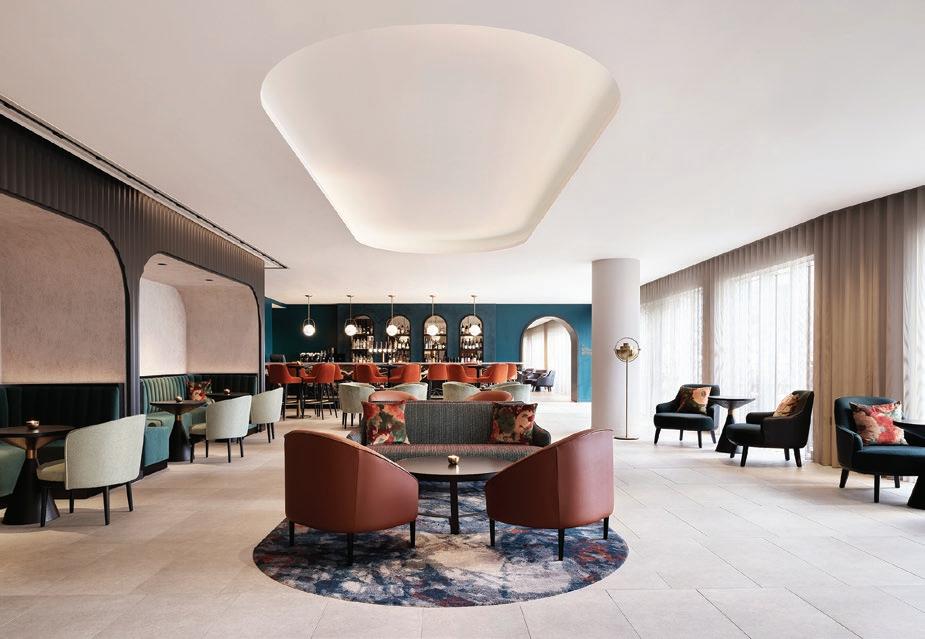
would expect, but in miniature. A small dining table could double as a desk. I was travelling en famille and the sofa bed was already made up for my 13-year-old, who was delighted to have a TV at the end of his bed! He also enjoyed the views from the floor-toceiling windows of the surrounding high rises. The bathroom had a large walk-in shower. Everything was clean and functional. Pets are also welcome.
THE FACILTIES There's a fitness centre on the top floor with even better views. The restaurant was still fairly new so there was only one other table of diners. It meant we had super attentive service from our chatty waitress. Mains, priced £15-£29 (for the Rib-Eye) included a nod to the location with a Brick Lane Chana Masala and Tandoori Roast Chicken Breast on a fresh, tasty slaw. The pea & mint soup was poured hot from a jug. A hot and cold buffet breakfast is included in the nightly rate and is kept well replenished – smoked salmon and fruit smoothies a highlight.
PERFECT FOR AN EXTENDED BUSINESS OR BLEISURE TRIP, WITH OR WITHOUT THE FAMILY
THE BUSINESS Purpose-built and flexible conference and events spaces are on the third and 12th floors and total 700 square metres.
THE VERDICT The location makes this perfect for an extended business or bleisure trip, with or without the family, There's a free laundry service too.
THE DETAILS King suites with kitchenette from £221, hyatt.com
Bev FearisAPARTMENT: Q SQUARE BY SUPERCITY APARTMENTS, BRIGHTON

THE APARTMENTS Right in the heart of Brighton city centre, these newbuild pet-friendly apartments are on the site of a former ice rink. Spread over five floors, they range from studios and one-bed apartments to the penthouses on the top floor with their own terraces, with sea views. Other apartments have balconies. Discounted parking (£14 for 24 hours) can be arranged at an RCP car park, a 5-minute walk away, while the train station is equal distance.
THE CHECK-IN Due to my rubbish satnav, I had a rather stressful drive (and had to call three times for directions) but got a lovely warm welcome from Lena on the front desk and Simon, the maintenance man, who kindly helped carry all my bags (mainly stuff for Flo, my dog!) in the lift to my top floor penthouse.
THE ROOMS We had two adjoining penthouse apartments – a onebedroom and a studio. Both were bright, modern and super spacious and shared a fabulous roof terrace with
views across the Brighton rooftops and to the sea beyond. Sadly the weather meant I couldn't make use of the sunbeds. A welcome hamper (for stays of seven night stays or more) included a chilled bottle of sparkling wine, fresh milk, porridge, pretzels and cookies. Flo loved her doggy welcome pack – a tennis ball, dog cushion, towel, poo bags and a bowl. The automatic blackout blinds were handy (with switches right by the beds) and the fridge was a great size. The well-equipped kitchen also came with a Nespresso machine and the bedrooms had ample wardrobe space and storage for longer stays. Despite the central location, the apartments were super quiet.
THE FACILITIES There's a small gym on the ground floor and a 24-hour reception. Everything else you need –bars, restaurants, shop – is right on your doorstep. There's a taxi rank right outside, which is also useful. For dog walks, head down to the seafront (dogs are allowed on the beach on the marina
A FABULOUS ROOF TERRACE HAD VIEWS ACROSS THE BRIGHTON ROOTOPS AND TO THE SEA
side of the pier) or use the nearby park for a quick stroll.
THE VERDICT The friendly staff and the central location make this a great choice for extended stays in Brighton and dogs aren't just accommodated, they're warmly welcomed.
THE DETAILS Studio Suites from £120 a night, one-bed Penthouse Suites from £235, supercityuk.com
Bev FearisOkay, so we know it's mainly a PR stunt but we still chuckled when we saw the photos that popped into our inbox to promote a new venture from easyJet Holidays. We're all familiar with the concept of a Kid's Club, but this summer the tour operator launched the world's first Dad's Club, designed to teach dads how to behave on their holiday and stop embarrassing their teenage offspring.
It took us right back to our younger years, watching redfaced as our fathers did that 'dad dance' – you know the one – and trying to be witty with the waiting staff, who'd heard the same 'jokes' a hundred times before.
It seems times haven't changed, as those two gripes still top the cringe charts, followed by dads complaining loudly, trying (and failing) to join
in with teen slang, and falling asleep (and snoring) by the pool. Tidalwave-making cannonballs, wearing socks with sandals and attempting TikTok memes also made the list.
The new club, at the Holiday World Polynesia near Malaga, invites dads to sign up for air guitar tuition, joke workshops, a

Anyone who follows us on LinkedIn will know we went a bit canine crazy in August, running two competitions in partnership with SilverDoor to mark International Dog Day.
In one contest, followers had to 'pair the pooch' with their business travel parents, but we clearly made it too difficult as even the winner – Nikki Regan, ATPI Director Commercial Strategy – only guessed one correctly. Well done Nikki!

We also launched a search for Business Travel's Top Dog. The winner (left) was Teddy, owned by Alicia Lord, EMEA Regional Operations Manager Amex GBT. Well done Teddy! By popular demand, next year it's cats.
fashion show and dancing lessons. On further investigation, it turns out the resort also welcomes business guests for conferences and events. We don't want to name any names, but it got us wondering if it might make a good spot for next year's BTA Conference? What d'ya think Sammi Wratten?
It probably won't come as much of a surprise that the average cost of a pint in the UK (£5.90) is way above the global average of £2.60, but where are the most expensive pints in the world? Based on the analysis of 166 countries, here's where:

1 Doha £10.47
2 Abu Dhabi £9.93
3 Muscat £8.68

4 Reykjavik £7.81
5 Beirut £7.51
6 Oslo £7.13
7 Zurich £6.54
8 Helsinki £6.33
9 New York £6.22
10 Manama £6.20
Research by finder.com
We're sure we're not alone in admitting that we'd struggle to identify the meaning of every single road sign in Britain, let alone those in other countries. But getting it wrong risks hefty fines, points on your licence and even a driving licence suspension. So, we took note when we received a press release from car rental experts, StressFreeCarRental.com, which had identified 13 strange road signs that might cause confusion. See if you can guess what this sign means and in which country? Answers will be revealed on LinkedIn in early October.
Time





